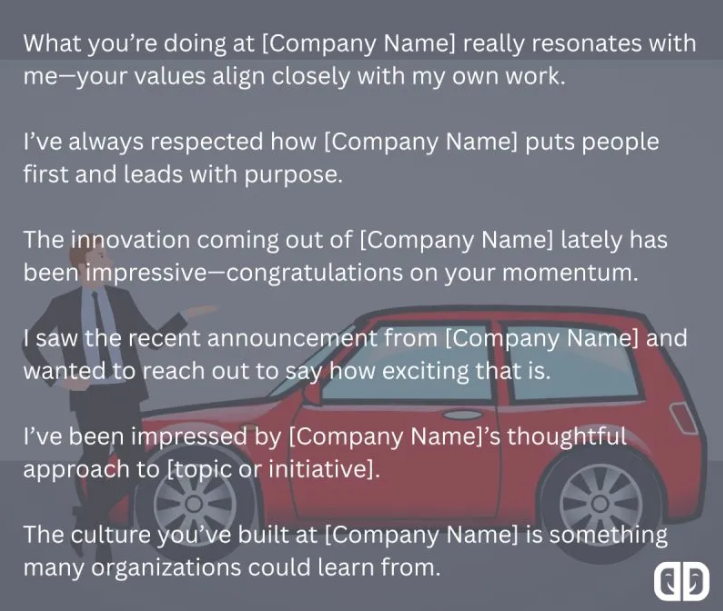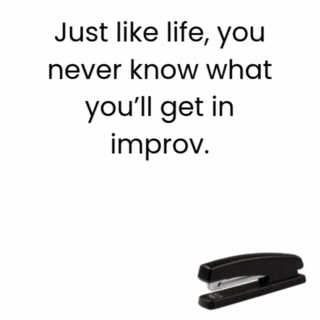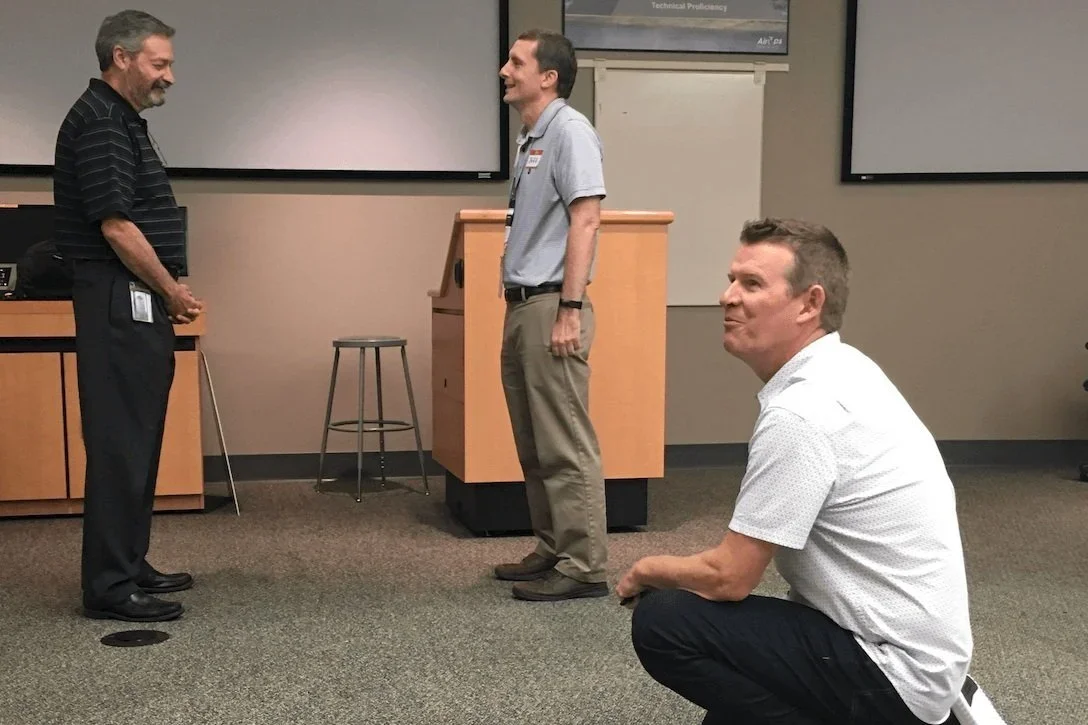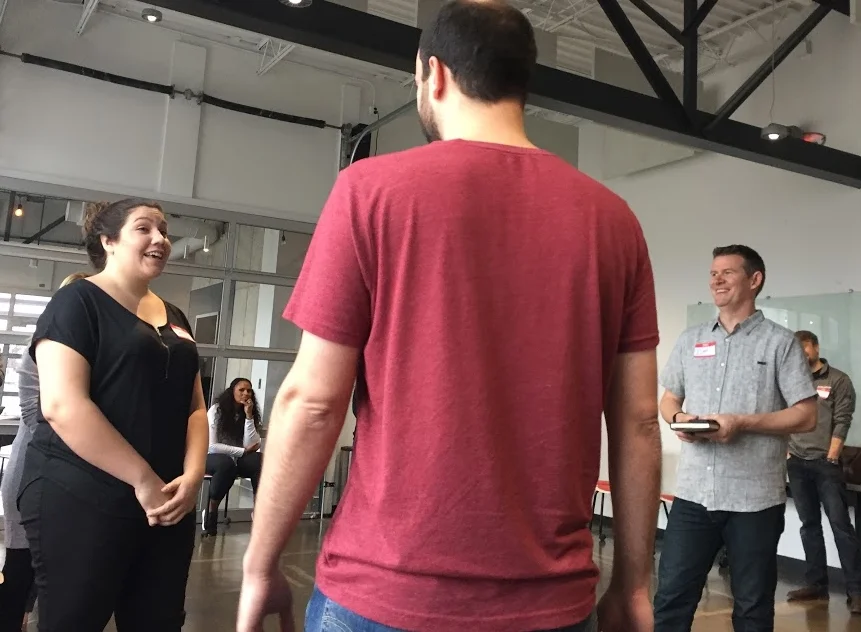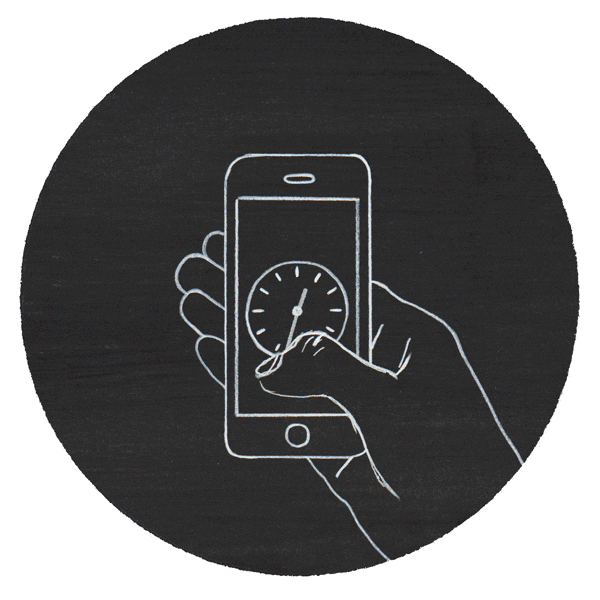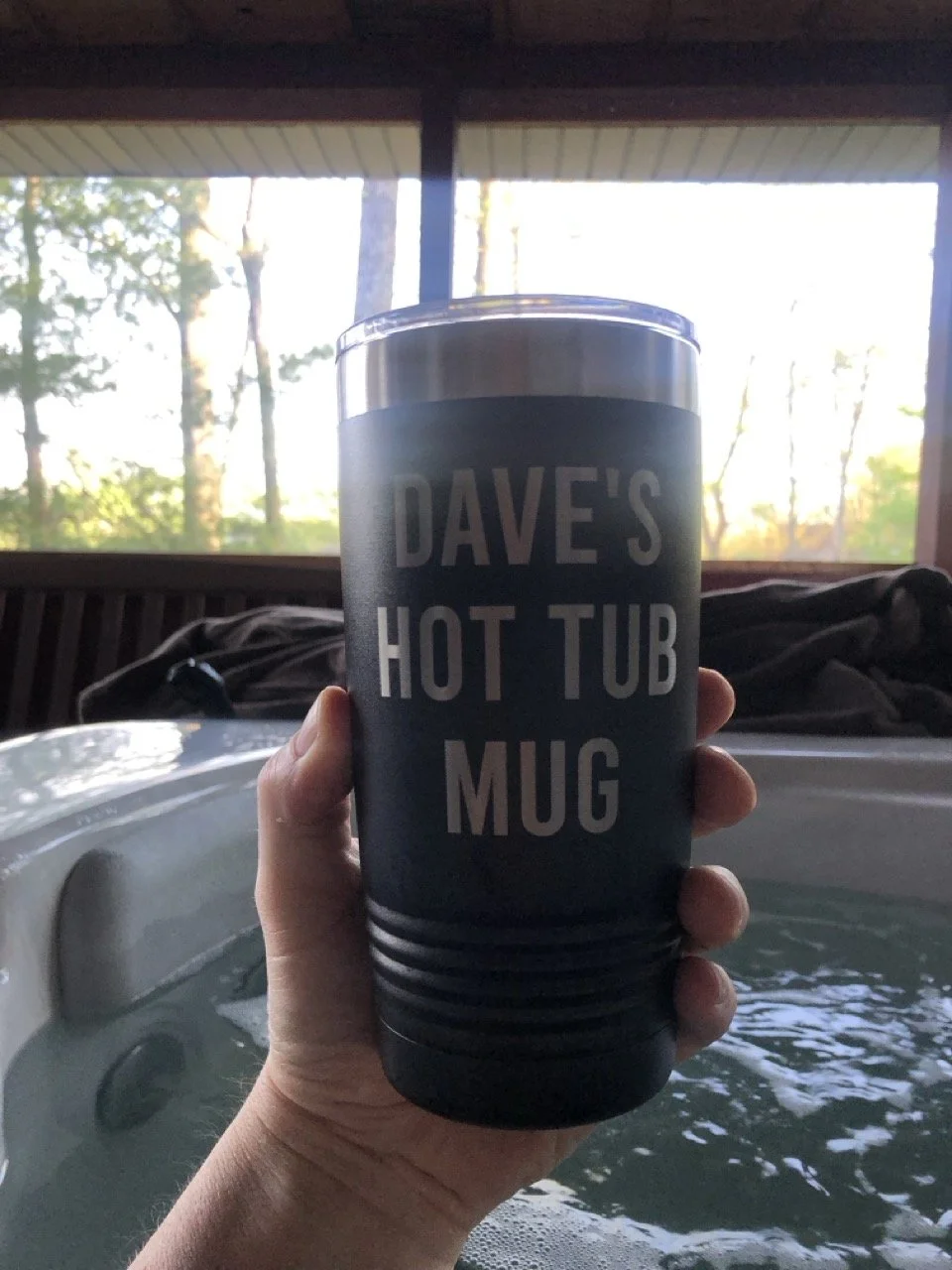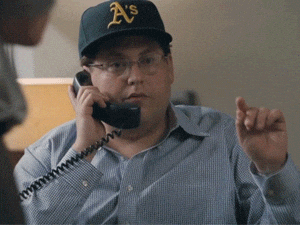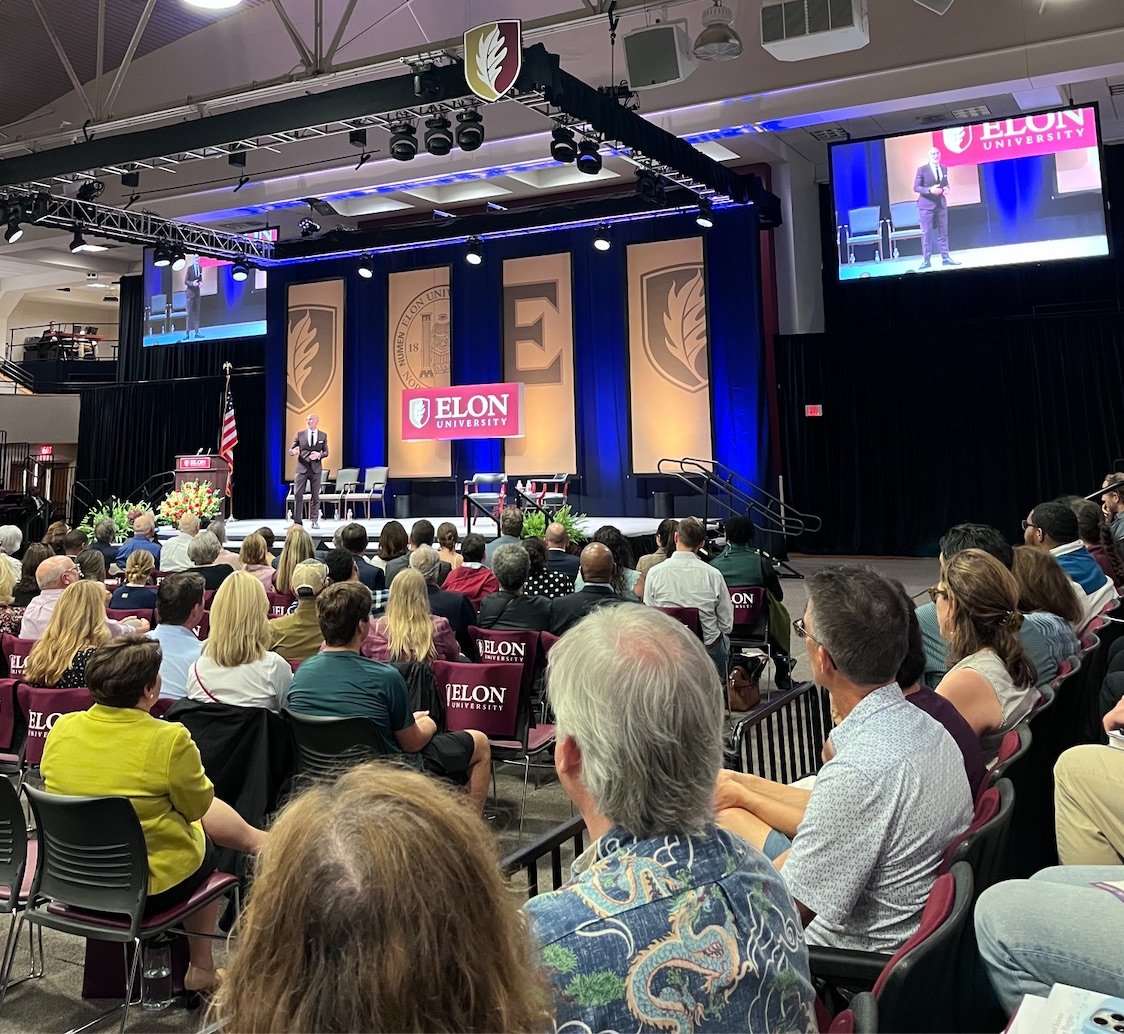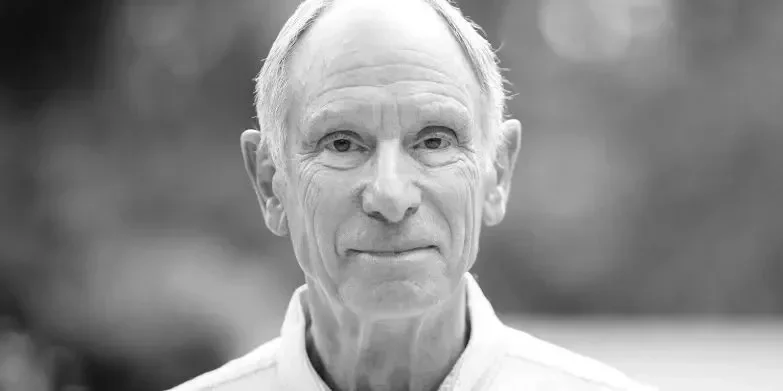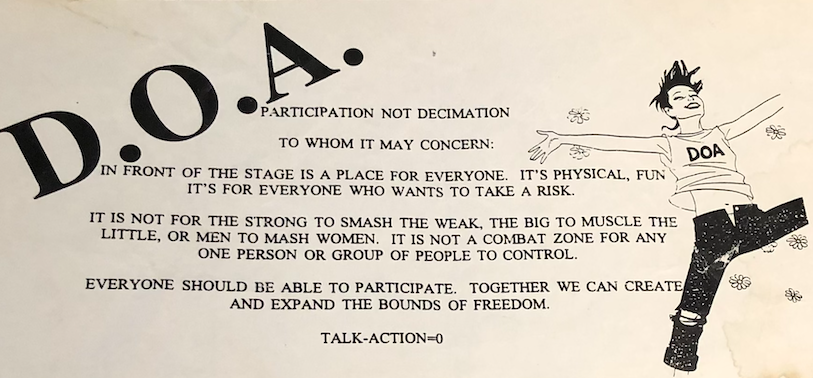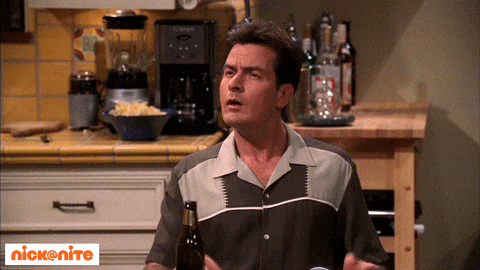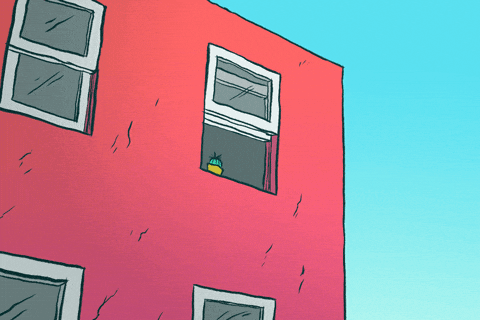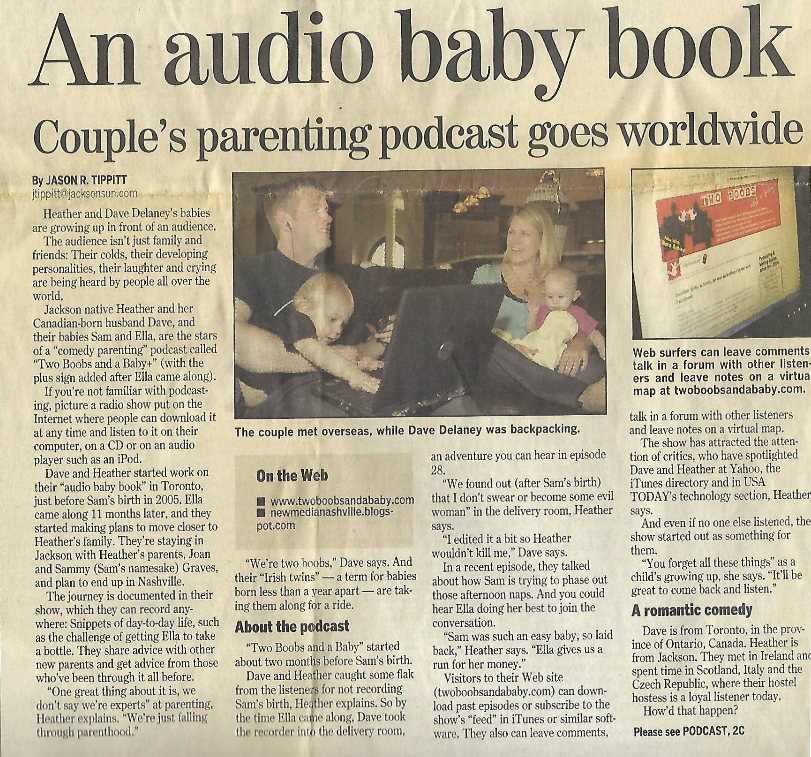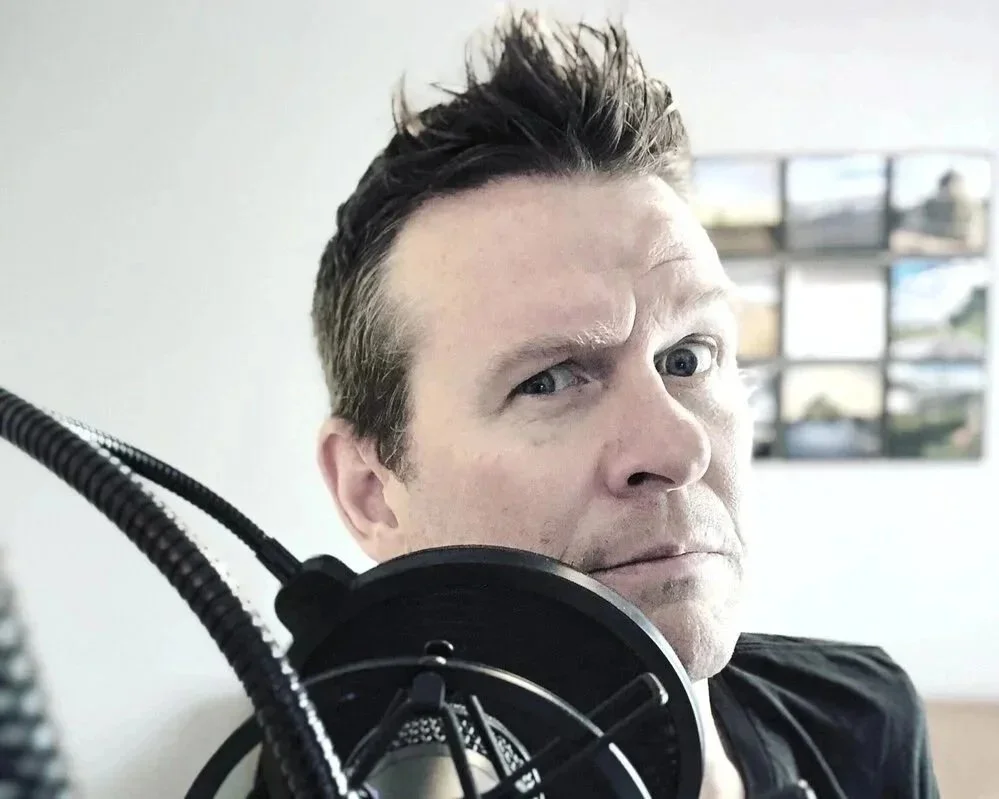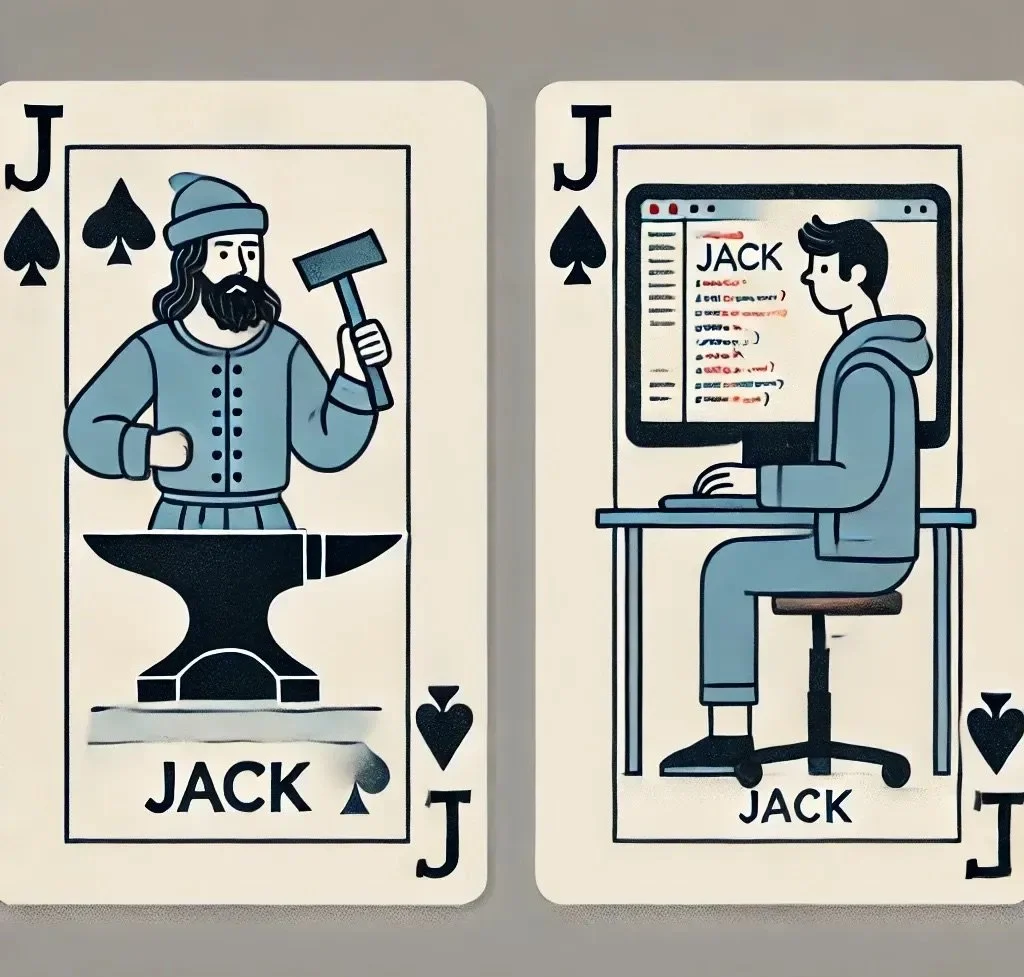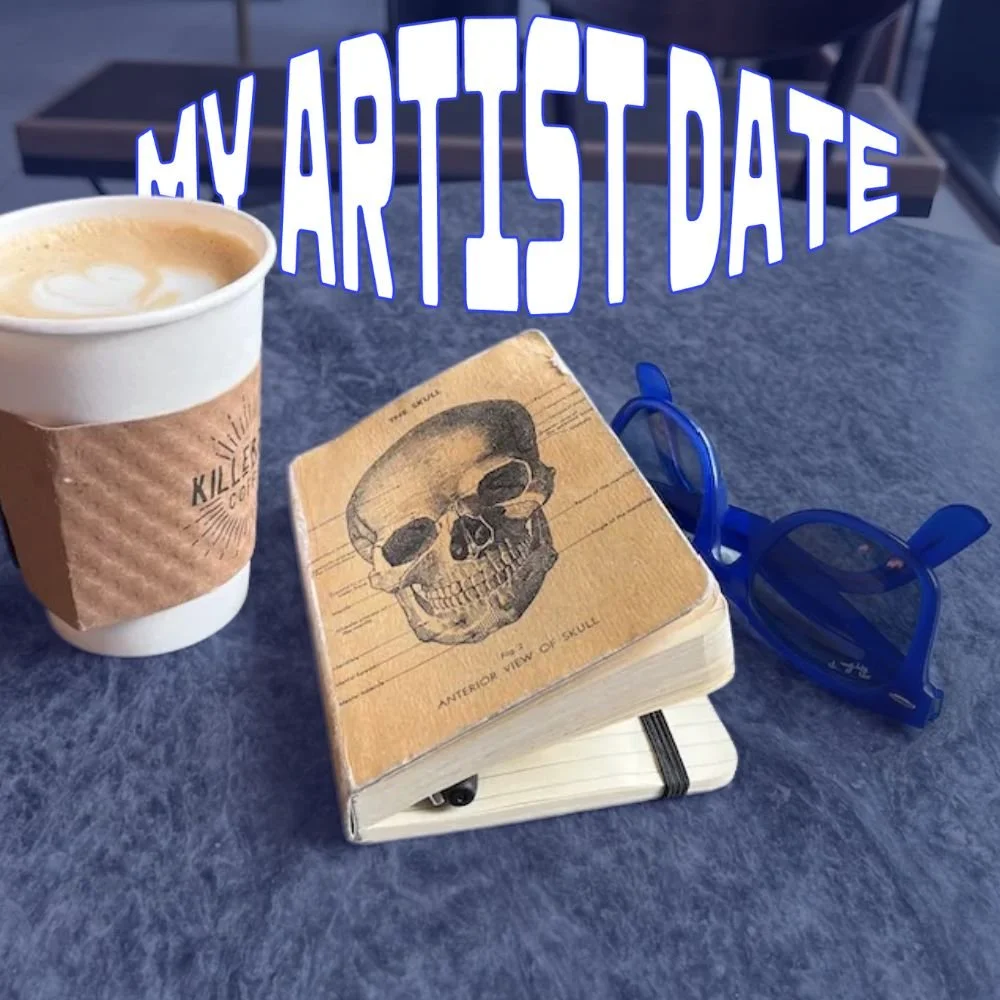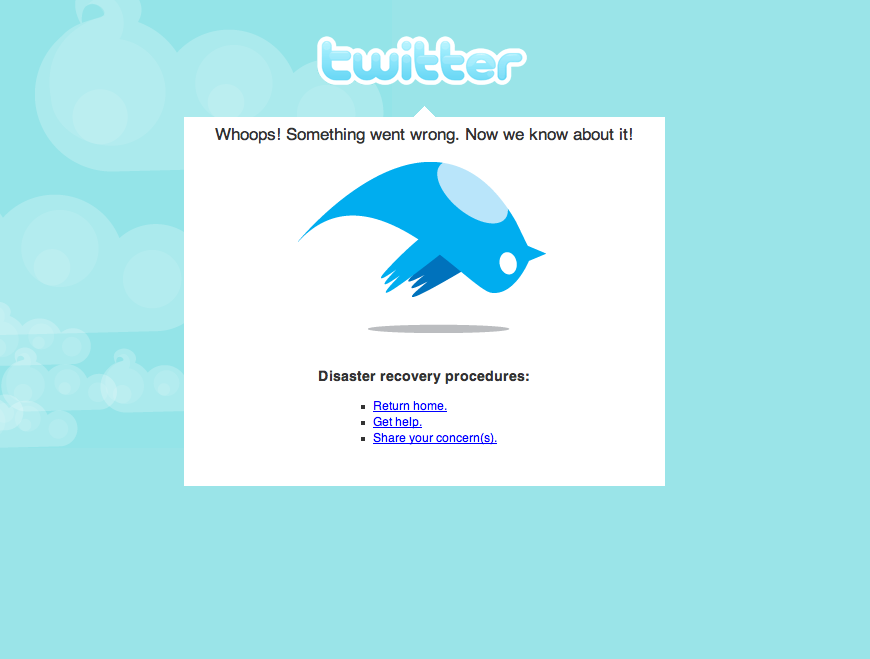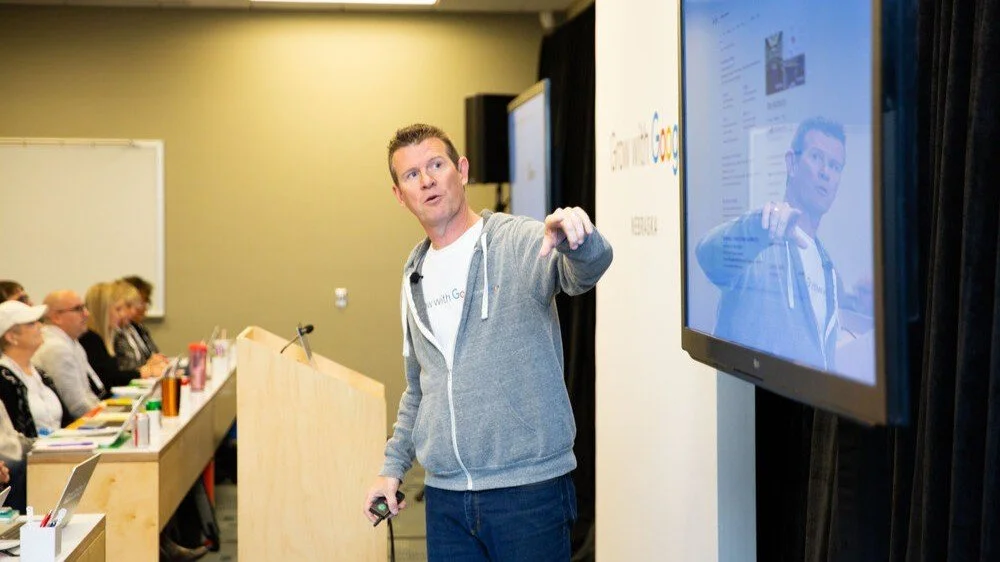[00:00.000 --> 00:18.000] What's up? I'm Ron Rappetalo, and this is the Rondering's podcast. Around here, I sit down with
[00:18.000 --> 00:22.880] guests for real, unpolished conversations about the lessons and values that shaped them.
[00:23.440 --> 00:28.560] I'll be right there with you, Sarah, my own take, laughing at myself when I need to,
[00:28.640 --> 00:31.520] and wondering out loud about this messy thing called life.
[00:33.520 --> 00:37.360] Glad you pulled up the chair. Let's get into it.
[00:40.000 --> 00:44.640] Welcome back to Rondering's fam, where we left up stories, lessons, and the moments
[00:44.640 --> 00:50.240] that shape who we've become. Today's guest, woof, this one's a ride. I'm sitting down with
[00:50.240 --> 00:56.080] D Dave Delaney, a Toronto kid to her Nashville neighbor, a 20-year podcasting OG,
[00:56.080 --> 01:00.160] and a master connector who somehow blended radio routes, improv training,
[01:00.160 --> 01:03.920] and a lifetime of curiosity. It's one of the most authentic voices in the game.
[01:04.640 --> 01:10.400] Dave Journey touches everything. Early social media days when community was real and RSS ruled,
[01:10.400 --> 01:14.960] the evolution of storytelling online, what it means to stay human in world where bots out
[01:14.960 --> 01:21.280] number people. We go deep on this ADHD diagnosis at 50, how it reframed his entire life,
[01:21.280 --> 01:29.360] inspired by his ADHD podcast, Wise Squirrels. It opened up a conversation about neurodiversity,
[01:29.360 --> 01:33.920] stigma, and finding language with the things we've carried for decades. This episode feels like
[01:33.920 --> 01:39.840] two guys, rabbit and beer, saying the quiet parts out loud about connection, about communication,
[01:39.840 --> 01:44.000] that are protecting the human spirit of the world that keeps trying to automate it. Let's get
[01:44.000 --> 01:50.560] into it. Hey friends, before we get started, I want to share something that's been a big part
[01:50.560 --> 01:56.160] of my own journey. Two years ago, I published my book, Leverage. That experience cracks something
[01:56.160 --> 02:01.920] open for me. I saw how publishing isn't just about pages, about owning your story, sharpening
[02:01.920 --> 02:07.200] your voice, and amplifying your impact. The part that meant the most, readers reached out to me
[02:07.200 --> 02:13.120] to say they felt seen. That's what I knew this work mattered. I love the so much I co-founded Leverage,
[02:13.120 --> 02:17.840] publishing group with friends who would make know this world inside and out. Now we help leaders,
[02:17.840 --> 02:21.760] entrepreneurs, and change makers turn their ideas into books and podcasts that actually
[02:21.760 --> 02:27.440] move people. Got a store in you, and I know you do. Let's chat. Find me a link then, or at
[02:27.440 --> 02:33.040] LeveragePublicianGroup.com, because the world doesn't just need more books. It needs your book.
[02:33.040 --> 02:41.520] All right, let's get to today's episode. Peace. Robderick's universe. This is a real treat because
[02:41.520 --> 02:48.960] Dave and I, like I would say a number of my guests over the 70-80 episodes by the time this gets
[02:48.960 --> 02:55.120] published. I have not met yet, but we have a common person in common. My former colleague,
[02:55.120 --> 03:02.000] Brett Kunch, rhymes it lunch, right? I know Brett well, and when I was asking Brett, because Brett is
[03:02.000 --> 03:08.880] a very avid link theater, if that's the appropriate noun. And he said, I think they should be someone
[03:08.880 --> 03:13.680] you should chat with, Ron, and especially for your podcast. And so here we go.
[03:14.240 --> 03:19.120] Dave, ladies on the mic. Dave, how you doing today? I'm great, Ron. Thank you for having me. I'm
[03:19.120 --> 03:24.720] excited to be here. Must be good to be on the other side of the podcast, too, huh? When you're not
[03:24.720 --> 03:30.560] hosting and interviewing, you get to... Oh, yeah. Nothing to... Yeah, yeah, yeah. It's easy peasy,
[03:30.560 --> 03:36.480] man. Yeah, I don't have to have my notes and figure out my questions and all the things. Yeah,
[03:36.480 --> 03:42.720] usually with with Y squirrels. It's... Yeah, a ton of crap, and it's just like... Yeah, it takes a lot
[03:42.720 --> 03:49.200] of time, so... Yeah. Well, I know I told you right before I hit the record button, right? The fun
[03:49.200 --> 03:54.720] and improv nature of this means I have no notes. Yeah, yeah, yeah. Which is even better. There's
[03:54.720 --> 04:00.320] me... But I know that there's a work for everybody, right? This comes from like decades of interviewing
[04:00.320 --> 04:06.640] people for jobs and lots of combos is that I am very much depending on my ability to improv,
[04:06.640 --> 04:12.000] which is... That's not every podcast. I wouldn't even tell a lot of people to do that, right? Because it
[04:12.000 --> 04:16.880] requires... It's a skill, right? Yeah. But I think that's what makes it fun because I can't bring
[04:16.880 --> 04:22.000] my authentic self without doing it that because you're going to say things that I don't know about
[04:22.000 --> 04:26.960] you. I'm going to get curious. They're going to be natural emotions that come up because I'm like,
[04:26.960 --> 04:32.640] oh, shit, I didn't know that about me. Because I really... I don't know. Which is why this is
[04:32.640 --> 04:37.840] joy for me. So... Yeah, yeah, yeah. Let's get it started. What's your story? Yeah, what's my story,
[04:37.840 --> 04:47.760] Morning Glory? What is my story? There's so many stories, but my most recent story is being diagnosed
[04:47.760 --> 04:56.560] with ADHD at 50. And so in being diagnosed, I did whatever nerd with ADHD does, and I launched
[04:56.560 --> 05:04.400] the podcast about it. I launched my podcast, you know, before I was formerly diagnosed with ADHD.
[05:04.400 --> 05:12.720] So we're... Yeah, I might... Yeah, I might... Well, my challenge with the podcasting stuff is that
[05:12.720 --> 05:20.560] like I started podcasting in 2005. So 20 years last month or whatever month we're in. So about 20
[05:20.560 --> 05:26.720] years ago. And I always joke that, you know, I've had multiple podcasts because I have ADHD
[05:27.760 --> 05:33.840] and undiagnosed at the time. So I always joke that had I started with a podcast about ADHD 20 years
[05:33.840 --> 05:40.640] ago, I'd have like Joe Rogan money now. Not being platforming freaks, but I would still be... Yeah,
[05:40.640 --> 05:46.640] yeah. But, you know, that's okay. What was your first podcasting? Oh, five podcasting. My God,
[05:46.640 --> 05:50.880] what was the first one that you did back then? It was called two boobs in a baby.
[05:52.720 --> 05:56.160] Kind of like two men in a baby. Is that what three men in a baby? Was it a riff on it? Yeah,
[05:56.160 --> 06:03.680] maybe they ripped it off. I don't know. Probably. Yeah. Yeah. Yeah. So we were pregnant and with our
[06:03.680 --> 06:09.200] first kiddo, Sam, and so we decided to start a podcast because we have friends kind of internationally.
[06:10.160 --> 06:16.240] So we called it sort of an audio baby book where we would just share the, you know, what our experiences
[06:16.240 --> 06:23.600] are, you know, being pregnant and kind of navigating that. And then, and then like all American sitcoms,
[06:23.600 --> 06:29.520] when the ratings start to slip, you add a baby to the cast. And so suddenly we had a second baby,
[06:30.160 --> 06:36.640] 11 and a half months later. Wow. So you talk about five like a true American sitcom in the 80s.
[06:36.640 --> 06:41.360] Yeah, right. Yeah, exactly. Exactly. Why is the kid older all of a sudden? What the hell? You're
[06:41.440 --> 06:47.280] right, right, right. Yeah. Yeah. Totally. Totally. But yeah. So, so yes, it's been podcasting a long time.
[06:48.160 --> 06:54.160] And, you know, I joke about American sitcoms, but I'm actually Canadian or canarican now as they say,
[06:54.720 --> 07:00.880] or as nearly young says, at least. So born and raised in Toronto, went to Ireland, met my wife
[07:00.880 --> 07:07.840] there who's from Tennessee. And that's how we ended up in Nashville. Wow. So because you mentioned
[07:07.840 --> 07:13.520] podcasting, like, well, we've in other elements of your story, right? Because it's interesting.
[07:13.520 --> 07:19.120] Like when I find when I ask people, what's your story? Generally speaking, I get the little bit of like,
[07:19.680 --> 07:25.200] what's what's my life? If that's the name of the shot, I forget the name of the show with like the 50s,
[07:25.200 --> 07:29.600] right? People go through on like, yeah, yeah, this is your mom, but yeah, you know, like surprise guests,
[07:29.600 --> 07:36.480] right? But I'm really curious about someone like you who's been in podcasting for so long. So my
[07:36.480 --> 07:41.600] curiosity is like, all the podcasts that you've done is that content's still out there that you
[07:41.600 --> 07:46.480] had like, do you ever look back on it and go, oh my god, I can't believe I put this together.
[07:46.480 --> 07:50.960] I want to resh out like restart these ideas and curious like when you look back at all of it,
[07:50.960 --> 07:55.440] like what you've learned and like what that journey's been. Yeah, I mean, yeah, I do look back at
[07:55.440 --> 08:02.960] some of them. I don't listen to most of them maybe occasionally if I have like a thought about a
[08:02.960 --> 08:08.480] guest on a previous episode or one of the other podcasts because I've had everything from like
[08:08.480 --> 08:13.440] two boobs in a baby was sort of more of what I call a rambles kind of couples cast, right? Or
[08:13.440 --> 08:18.400] more of a couples cast in that case. Yeah. So we were sort of inspired early on by like Don and Drew
[08:18.400 --> 08:24.720] who were pretty early into podcasting. And so I sort of modeled it kind of off of their their
[08:24.720 --> 08:32.400] format. And then I've had a podcast where it's just me solo. I had one called Walking with Dave,
[08:32.400 --> 08:37.440] where I'd be walking the dog and I just rambled. So I called that a rambled cast just when I'm solo
[08:37.440 --> 08:44.400] person. And then the interview format, which is what I'm doing now. So yeah, I sometimes think of it
[08:44.400 --> 08:52.160] like an actor in a way and I dabble in that. But that, you know, it's too cringy to like watch or
[08:52.160 --> 08:56.480] listen to yourself from years ago, but we're occasionally. And some of them are still out there,
[08:56.480 --> 09:02.080] some of them aren't. Yeah. What inspired you? You gave a little bit of the background of like
[09:02.160 --> 09:07.840] tube is in a baby started, right? But like these other podcast ideas aside from the one that you
[09:07.840 --> 09:12.960] now are doing, I think on ADHD, right? The wilds girls. But where are the inspirations for the
[09:12.960 --> 09:17.120] other podcast where there's just like a fucking, I'm going to record because this would be fun or
[09:17.120 --> 09:22.800] like what there was. There's some Genesis story. Yeah, that's a good question. I've so I majored
[09:22.800 --> 09:29.280] in radio and television broadcasting back in the day. And so what came was really and I majored
[09:29.280 --> 09:35.200] in radio actually and worked in television years later. But and and so that was like, you know,
[09:35.200 --> 09:43.840] mid 90s and in the, you know, in in 2004, I'm also a nerdy. So I've always loved internet culture.
[09:43.840 --> 09:49.360] Well, I used to love it not as much now, but that's a different. It's getting to be drags. You
[09:49.360 --> 09:56.560] have to find a dumpster of fire. Yeah. I know. But yeah. But early days, you know, I was, I mean,
[09:56.560 --> 10:02.880] I ran a BBS on my Commodore 64, which dates my my that reference. But that was, you know, 80s.
[10:02.880 --> 10:08.880] That was pre internet when I was like, yeah. So I've always been into online, online. But I was
[10:08.880 --> 10:14.880] never into gaming or anything. I was into years later reflecting on my career and my life and
[10:14.880 --> 10:22.080] and working with coaches myself. Yeah. As well as, you know, now coaching others. But I learned that
[10:22.080 --> 10:28.000] I'm really about communication at the end of the day. And so and and people like I genuinely,
[10:28.640 --> 10:34.560] there's no point in communicating if it doesn't involve people, right? And so, just, you know,
[10:34.560 --> 10:40.800] starting podcasting was a way to kind of build a community. We had a forum and and listeners could
[10:40.800 --> 10:45.920] interact with us and things. So it just made sense. So yeah. So I've been in that space forever.
[10:45.920 --> 10:51.760] Some of the other podcasts I had, I did some work with the business accelerator sort of a startup
[10:51.760 --> 10:57.360] incubator here in Nashville interviewing, you know, entrepreneurs both locally and then
[10:58.800 --> 11:08.160] more popular names, people like Seth Godin and yeah, Kawasaki and yeah. And so I had that podcast.
[11:08.160 --> 11:13.680] Not chronologically speaking, but I had one as I mentioned that of me just walking the dog.
[11:13.680 --> 11:19.600] I had another one of me sort of reciting old like short stories and things that I journaled
[11:19.600 --> 11:26.960] over the years. I had another one called the called NBN radio, which was stood for new business
[11:26.960 --> 11:31.840] networking radio, which my book is called new business networking. So I started that around the same
[11:31.840 --> 11:36.400] time to promote the book and also just to talk to people about networking, good networking, not
[11:36.400 --> 11:43.600] icky networking. And then and then what else? Oh, and then nice podcast, which was the last one I had
[11:44.160 --> 11:52.400] before starting ADHD-Y squirrels. But I'm now 63 episodes today or 60, yeah, a little over 60.
[11:52.400 --> 11:59.680] Congratulations. Thanks. Yeah. And yeah, I love it. It's definitely this one's different in a lot
[11:59.680 --> 12:04.640] of ways and it's really special and important. Yeah, it makes so much sense and it's nice to meet
[12:04.640 --> 12:09.760] someone that has had formal training to get into this world, right? I don't want to assume this
[12:09.760 --> 12:16.080] is all podcasters, right? But you know, this makes me think of when I reference at time of this
[12:16.080 --> 12:22.320] recording, right? Was it a career there earlier this morning? Right? So I'm talking to middle schoolers
[12:22.320 --> 12:28.560] about what I do. And you know, it was the thing that interested them most. It wasn't my full-time job.
[12:28.560 --> 12:34.400] We were saying that I was a podcaster and saying that was a storyteller. And it's the part about
[12:34.480 --> 12:40.720] my journey that I'm like, that's not what middle school run ever would have thought. And I just
[12:40.720 --> 12:45.520] had this thought, well, but I remember we had to write for in my middle school class, like I had to
[12:45.520 --> 12:51.440] write this like mini book about something I enjoyed. And interestingly enough was about video games
[12:51.440 --> 12:58.080] and playing old NES back in the late 80s, right? Yeah, sure. And it was fascinating that I think
[12:59.120 --> 13:03.520] I'd been so consumed with like how good I was academically and the things I was good at
[13:03.520 --> 13:10.640] academically in terms of test scores, math and science. And yet as I got older and I realized
[13:11.120 --> 13:17.120] being around people that my even more genius skill was the emotional and social intelligence
[13:17.120 --> 13:22.400] and being able to communicate and inspire people, right? Yeah, that's true. I'm curious,
[13:22.400 --> 13:27.440] like how did you choose radio and TV to be something you measured in when you did that, right?
[13:27.440 --> 13:31.280] Because it makes sense, like in the world that you're in and what when I know about you so far,
[13:31.280 --> 13:34.880] they that like, yeah, of course, you would have measured into that, right? But I don't know
[13:34.880 --> 13:40.480] podcasts. There's why so like, I measured like in something in like median, right? That seems
[13:40.480 --> 13:49.280] to be much smaller percentage. Yeah, I think I always actually wrote a blog post about this at
[13:49.280 --> 13:55.520] on my blog at Dave Delaney.me a long time ago, but it was about this, you know, I'm a child of the
[13:55.520 --> 14:04.400] 70s 80s. So radio was obviously a big a big part of that. And you know, and being sort of a
[14:04.400 --> 14:11.280] person who is maybe annoyingly, you know, undiagnosed, right? So I'm the Bart Simpson hyperactive
[14:11.280 --> 14:17.760] kid back in the day driving my teachers crazy. And I was the class clown. And I've always been
[14:18.400 --> 14:24.080] quick-witted and funny or funny looking at least. So I would love to get people laughing. And
[14:24.160 --> 14:29.040] that's still something I do with my presentations in my, like, when I do a keynote or workshop or
[14:29.040 --> 14:35.920] something. It's a big part of what I do. But so I always loved getting people laughing. I would do
[14:35.920 --> 14:43.360] like crank calls and record the call. And so I had those cassettes of crank calls. The friends and I
[14:43.360 --> 14:48.960] absolutely loved listening to we had a video show. Benjamin Dover is a Benjamin Dover here.
[14:49.200 --> 14:56.080] Right, right, right. Yeah, we did some pretty fun ones. So stuff like that, the medium of like
[14:56.080 --> 15:03.360] recording it, like the idea of using media was just fascinating to me. And as I got older,
[15:03.360 --> 15:09.920] I got more and more, you know, into making mixed tapes for friends and ex-girlfriends and all the
[15:09.920 --> 15:17.600] stuff. And so performance has always been part of it too. I studied improv with Second City and Toronto
[15:17.680 --> 15:22.800] and kind of have done a lot of improv and comedy in my, in my career. And that plays a role in my
[15:22.800 --> 15:28.800] life. People don't know if the audience doesn't know, like Second City and the Canadian, like,
[15:28.800 --> 15:34.560] geniuses that have gone through there. As someone who, like, consumes a lot of pop culture, I mean,
[15:34.560 --> 15:41.760] Second City. My, that is, yeah. Who did you train with there? Did you get to see any of the, like, folks?
[15:42.480 --> 15:47.440] No, they were sort of before my time. I mean, they were like, because it was, you know, but, but,
[15:47.440 --> 15:52.640] yeah, I mean, Toronto's not that, I mean, it is now, I guess, it's the fourth largest city in
[15:52.640 --> 15:57.920] North America now. Yeah, it's crazy. Because the show SCTV was Second City, right? That was
[15:57.920 --> 16:03.760] Second City television. Yeah, so Second City. We're dating ourselves day by talking about SCTV,
[16:03.760 --> 16:09.280] what that, that's, that's it out, like, yeah. Well, for folks who, who might be a tad younger,
[16:09.920 --> 16:15.440] or, or more into, like, more current shows, you know, Shits Creek, which has wrapped,
[16:15.440 --> 16:20.800] but Shits Creek is a great example because Eugene and Catherine O'Hara were both alums from
[16:22.000 --> 16:26.800] and Second City and Toronto. And so Martin Short, Gilder Radner was around, even though she's
[16:26.800 --> 16:32.160] American, they let her hang out. John Candy. Yes. I think it's a Catherine O'Hara there.
[16:32.800 --> 16:39.120] Andrea Martin, Rick Moranis. Yes. You know, Ghostbusters and, and I struck the kids and
[16:39.680 --> 16:44.880] all those guys. So, yeah, there was like a, yeah, SCTV or Second City, I should say, started in
[16:44.880 --> 16:51.680] Chicago and then, and then moved or opened a location in Toronto. And that's where that
[16:51.680 --> 16:56.640] crew of famous comedians and actors, Martin Short, I think I mentioned them. We're also
[16:57.760 --> 17:04.080] there. I know I'm forgetting somebody and it's driving me crazy. I know. I'm like thinking. Oh, wait, Rick Moranis and
[17:05.520 --> 17:10.240] this is terrible. Okay, it'll come. It'll come. This is the ADHD brain at work because our minds
[17:10.240 --> 17:14.800] are moving so fast. It's like, wait, it's, it's there. I just slowed down to get the name right in
[17:14.800 --> 17:20.720] front of my face. Yeah. Jill Flierny, but there's someone else. Okay. Oh, my gosh. You know, it's
[17:20.720 --> 17:26.640] interesting. So because we have such a rich amount of like podcasting episodes, not as rich as
[17:26.640 --> 17:32.160] yours. I'm not 20 years in, right? But like I'm two and a half years in one of the podcasts that I
[17:32.160 --> 17:40.720] have was one of the co founders or one of the like main teachers and coaches at a popular improv
[17:40.720 --> 17:46.160] studio here in New York City, Magnet theaters. I'd Rick Andrews on and just taking one class with him
[17:46.160 --> 17:51.520] and then my wife took several and just when you get that taste of improv and what that means or
[17:52.320 --> 17:57.600] how well you can communicate with others, but how well that allows you to lead because he teaches
[17:57.600 --> 18:04.240] leadership classes too. That's what I did. Right. Yeah. Yeah. I've got a, like I've got a keynote
[18:04.240 --> 18:09.920] presentation I do. It's my signature talk. It's a one I've done. Yeah. It's most popular and it's
[18:09.920 --> 18:15.920] called the master communicator's secret weapon. And the reveal to the audience is the secret weapon
[18:15.920 --> 18:22.560] is improv. But and then I go through sort of these core concepts from improv, like overcoming a
[18:22.560 --> 18:27.760] fear of failure or thinking faster on your feet, body language, active listening, all these things
[18:28.400 --> 18:35.280] leading with acceptance, all of these takeaways that I learned from improv, but teaching the audience
[18:35.280 --> 18:40.400] how to apply these lessons to the way they show up in the world and network and meet other people
[18:40.400 --> 18:50.240] and so on and lead people. So it's not sometimes improv actors become speakers and then like
[18:50.240 --> 18:56.640] bring the audience on stage and things like that. I do some interactive stuff and I do some, but
[18:57.680 --> 19:06.480] I'm very careful not to make people feel uncomfortable. And so I'm quite, quite careful with that.
[19:06.480 --> 19:12.400] I do do a workshop called the the secret weapon workshop, which sometimes conferences will
[19:12.400 --> 19:19.120] hire me to do as a as a follow up to the keynote. So that way they'll, so that way like it's a breakout
[19:19.120 --> 19:25.040] session at that point. So those who are keen to really get their hands dirty, imaginary dirty,
[19:25.040 --> 19:29.520] of course, it's improv, but they will come to my breakout session and then the other sessions can
[19:29.520 --> 19:35.040] go on. So that way those who want to really get into it. And and of course I do like corporate
[19:35.040 --> 19:40.160] workshops and training as well around around using these skills because yeah, there's a lot,
[19:40.160 --> 19:44.960] a lot there, but I'm careful not to not to make people feel uncomfortable either.
[19:45.760 --> 19:50.720] All right, let me keep it real. A lot of this have write-up books and air goals lists.
[19:50.720 --> 19:56.640] Maybe for years, I sure did. Good news is there's more than one way to get it done. If you've got
[19:56.640 --> 20:01.440] more money than time, a ghost rider can help bring your story to life. If you've got more time
[20:01.440 --> 20:06.160] than money, a great book coach can guide you through the process step by step. If you're on a
[20:06.160 --> 20:09.920] written thing, you'll want someone to shepherd you through publishing, so you don't waste time or
[20:09.920 --> 20:15.680] cash. Here's the thing though, no matter how you do it, the real win is riding the right book,
[20:15.680 --> 20:20.080] the one that builds your credibility, grows your business, and actually makes difference.
[20:20.080 --> 20:24.560] That's what the team with books that matters all about. Head to books that matter, that board,
[20:24.560 --> 20:30.240] and get some feedback in your idea of manuscript. Don't sit on any longer. Your book can be exactly
[20:30.240 --> 20:35.760] what the world needs. Because it can be right when people feel like they're put on the spot,
[20:35.760 --> 20:39.920] or they're not being, or they're doing something that's outside their comfort zone, it can get a
[20:39.920 --> 20:45.280] little dicey, right? I've seen that when I, the one semester I took the improv class, right? I mean,
[20:45.280 --> 20:49.680] I think it's hard for some folks because it, you know, the thing that I had to unlearn in doing
[20:49.680 --> 20:55.280] improv was like, this is not about me being funny guy. I'm not doing stand-up, right? And the
[20:56.000 --> 21:01.200] person that person never survives the class, they never graduate. And I had to learn to like,
[21:01.200 --> 21:06.400] Ron, this is not about saying the funny line, you have to do it in the moment, in the yes and
[21:06.400 --> 21:10.960] structure of the improv, right? And so you're just reacting off of someone and just, and in
[21:10.960 --> 21:16.720] if it's the insanity of some of the premises is where the fun is, right? And if you just
[21:16.720 --> 21:22.000] do it, right? Yeah, absolutely. And that's what I really learned is like, just like when you
[21:22.000 --> 21:26.960] lead, you don't always have control over all some of these leadership things. And you and I coach
[21:26.960 --> 21:32.400] like, I'm like, they're really, this is really happening in their leader. This is crazy shit. And I go,
[21:33.040 --> 21:38.240] but then you have to like, sort of like help make meaning, provide space, ask questions. And then
[21:38.240 --> 21:43.760] really good stuff can come out when you listen really deeply and help build with somebody, right?
[21:43.760 --> 21:50.240] Which is 100% like it's total improv. Just like the podcast. Yeah. Exactly. Yeah.
[21:50.800 --> 21:55.120] Well, something I think you and I are interested in and I can't help but to bring, you know,
[21:55.120 --> 22:00.160] bread into the space, like my colleague Brett connected us because he thought you and I would be
[22:00.160 --> 22:05.360] good connects in the fact that like you have also written a book on networking. I wrote one myself
[22:05.360 --> 22:09.280] more like a circle of champions. Tell me a little bit about when you wrote there and like what
[22:09.280 --> 22:16.640] your approach is because when I hear when people hear the term and always wigs people, I get it and
[22:17.600 --> 22:22.400] here's how Dave explains it. So go well. Yeah. That's why the keynote is called networking for
[22:22.400 --> 22:27.680] nice people because, you know, and I used to run a website called networking for nice people as well.
[22:27.680 --> 22:33.600] So yeah, because networking does have kind of negative connotations, of course, and makes, you know,
[22:33.600 --> 22:39.360] you feel kind of icky if you think of networking like in your stereotypical kind of the networking
[22:39.360 --> 22:46.000] examples that come to mind. Yeah. So when I moved from Toronto to Nashville, I didn't know a soul
[22:46.000 --> 22:52.400] besides my wife obviously and kids and like one other couple and besides them, I didn't know anyone
[22:52.400 --> 23:00.320] and I was looking for a job and, you know, all that stuff. And so part of the book, new business
[23:00.320 --> 23:06.960] networking is about me moving here and not knowing anyone and how I networked my way to getting a
[23:06.960 --> 23:13.280] job and then landing and then eventually, you know, launching my own business. Yeah. And it's not
[23:13.280 --> 23:17.200] just about me. I mean, there's plenty of examples in there. But as I mentioned earlier, as an
[23:17.200 --> 23:23.760] early adopter of social media and social networks, I have chapters, now the books like 13 years
[23:23.760 --> 23:30.960] old now. So I have chapters on Twitter and Facebook and LinkedIn. A lot of that is still relevant.
[23:32.080 --> 23:38.640] But except Twitter, which I wouldn't recommend anyone used. And, and then I have chat. So I have
[23:38.640 --> 23:42.320] chapters on these different social networks because I've been on them like forever. Like I was on
[23:42.320 --> 23:48.000] Twitter February 07 and I've been on LinkedIn 18 years just a couple months ago. And so
[23:49.040 --> 23:53.680] because I'm an early adopter in this stuff and use them to genuinely build relationships,
[23:53.680 --> 23:59.280] meet people and then go to conferences like CES or South by Southwest or other tech sort of
[23:59.280 --> 24:05.840] related conferences. I would meet up with people there. And so I do have chapters on podcasting
[24:05.840 --> 24:10.880] and then I also have chapters on how to organize your own events, how to attend conferences and
[24:10.880 --> 24:16.640] network, you know, well. And so, and, and part of that is, you know, one message I have is talk
[24:16.640 --> 24:23.040] to strangers, unless you're my kids. So if you're a kid listening, don't, yeah, don't talk to strangers.
[24:24.080 --> 24:29.440] But to talk to strangers and what's really funny is my book, New Business Networking came
[24:30.320 --> 24:36.720] from me at a conference who I saw a woman sitting behind this table of she was a publisher and she
[24:36.720 --> 24:41.280] had some books on display and I knew some of the authors. So I went over and just introduced myself
[24:41.280 --> 24:45.920] and started chatting. And she's like, what's your book? And I said, I don't have a book. And she's
[24:45.920 --> 24:52.560] like, you know, what what's your book? And I'm like, and I had this idea of like online and offline
[24:52.560 --> 24:58.240] networking kind of combined. But I never articulated. I never even shared the crazy idea with my wife.
[24:58.240 --> 25:04.240] And she would hear all the crazy ideas. God bless her. Yes. And so she got it out of me and I said,
[25:04.240 --> 25:10.000] well, I have had this idea and I explained it to her. She's like, I love that. And we exchanged
[25:10.000 --> 25:16.400] information, like contact information. I followed up with her. She sent me a visit or a book proposal.
[25:16.400 --> 25:21.120] Next thing I knew I had a publishing deal. I had an advance, a contract, all that stuff. And I'm like,
[25:21.120 --> 25:28.480] oh, and that's how somebody writes a book with undiagnosed ADHD, by the way, is with a legal contract.
[25:29.440 --> 25:36.880] Because otherwise it's not easy. So and it wasn't easy. But yeah. So my book about networking came
[25:36.880 --> 25:42.560] from networking, which I kind of like. That's fascinating. I have a somewhat similar story. I
[25:42.560 --> 25:48.960] tell me yours. I got reached out to via LinkedIn by the same folks who helped me produce this podcast,
[25:48.960 --> 25:53.520] by the way. So they also do podcasting. My friends at Thought Leader Group, right? Yeah. And so I
[25:53.520 --> 25:59.200] got to reach out through either Randier Kent. I'd have to look back. It was one of them, right? Yeah.
[25:59.200 --> 26:03.600] But we'll stick with Kent. And it was like, hey, do you want to write a book? And it just felt time.
[26:03.600 --> 26:08.240] It felt the message felt different enough. I was like, effort, because you know, when you have
[26:08.240 --> 26:13.040] a lot of connections on social media like you and I do, you get hit up a lot. I get, you know,
[26:13.040 --> 26:19.200] I don't respond to most of it. But this one, I was like, I'm curious. So I had the combo. And
[26:20.000 --> 26:26.400] the cell was good because Kent and Randier that asked me a lot of good questions and it went into,
[26:26.400 --> 26:30.480] you know, we should write the book about. It was at a time in my life where I was like, I'd been
[26:30.480 --> 26:35.760] thinking about it for a minute, right? I knew what that was good at. Professionally, right? Yeah.
[26:35.760 --> 26:42.000] Career coaching, career networking, giving advice. And then the book turned into more of a how to
[26:42.000 --> 26:49.280] network into, let's make it a story. I love it. And so it became around the seven archetypes of
[26:49.280 --> 26:53.200] people you need to your circle of champions, right? You know, be your person boarded advisors.
[26:53.200 --> 26:58.160] There's all these terms for it. For a little parable, I guess, in a way. Yeah. It became like,
[26:58.160 --> 27:04.800] here are the things that each of these like archetypes have. But it tells it through the stories of
[27:04.800 --> 27:10.000] these people and how they helped me at different points in my career and life, including my wife,
[27:10.000 --> 27:14.960] right? Yeah, that's personal. Sage. And so I like the book because it's not your usual like,
[27:14.960 --> 27:20.240] here's just advice. It's because the thing that I've learned over and over again,
[27:20.240 --> 27:24.480] not only this podcast, but things that I consume that I enjoy, it the story is good.
[27:25.200 --> 27:32.240] I'm going to keep coming back. So I do. Yeah. Well, sorry, before you ask, I do like,
[27:32.880 --> 27:39.440] you know, coaching with with my clients on how to better know themselves their strengths and so on.
[27:40.400 --> 27:45.760] And I go through what I call the route down, which is this process with them. But the reason
[27:45.760 --> 27:52.400] why I brought it up was, you know, like if I do a workshop with a company and we do profile analysis
[27:52.400 --> 27:59.120] or personality strengths, you know, that kind of thing, then it's kind of done as a team or
[27:59.120 --> 28:04.960] a department or company wide. So they all know and their strategies for that, like, you know,
[28:04.960 --> 28:10.960] change in the color of their business cards or pinning up their type on their cubicle or door
[28:10.960 --> 28:15.520] or whatever. But for you, for the book, and you'll have to excuse me for not reading it,
[28:16.160 --> 28:24.400] it's okay. If you need like to have this group of wise, you know, mentors in your life who fit
[28:24.400 --> 28:29.680] each different category, how do you know, how do you know your wife was a sage? I mean, that would
[28:29.680 --> 28:35.440] be an obvious one, right? But like for the others, are you actively, were you actively looking for
[28:35.440 --> 28:40.720] these different types of people or, or did you just realize like, Oh, wait, this person is this
[28:40.720 --> 28:46.480] and this person is that. So a lot of their like magic sauce in the writing of the book, it was
[28:46.480 --> 28:50.640] they just asked me about people influenced me. And then as they went through the series of questions
[28:50.640 --> 28:56.880] about each person individually, and then became what title would you give this person? So the title
[28:56.880 --> 29:00.880] came much later. And the idea of the archetype came in reflection, it's talking about the story
[29:00.880 --> 29:07.280] of the person. That's cool. So they go straight it with you. Is that how it worked? Yeah, I'm someone,
[29:07.280 --> 29:11.920] this is where the ADHD really comes down. So I struggled to write five page papers in high school
[29:11.920 --> 29:18.000] in college. Sure. Yeah. You know, ginkgo below the and lip thin black tea with a little bit of
[29:18.000 --> 29:23.920] milk was my caffeine to stay up and pull on writers, right? Right. Um, to sit down like my wife just
[29:24.000 --> 29:29.280] wrote a dissertation for her doctorate, right? Graduated in May. I don't have not, not don't have.
[29:30.240 --> 29:37.120] It would be a lot of energy for me to like do that kind of stuff like kind of like that detail
[29:37.120 --> 29:45.760] long work is not. It doesn't give me juice like this love, right? The hour or less, right? The
[29:46.400 --> 29:53.120] writing reading an article versus a book. I mean, Dave, I have too many books on my bookshelf,
[29:53.120 --> 29:58.480] which is not in view and the bookshelf where my TV sits in the living room. There's Polly,
[29:58.480 --> 30:06.400] the three books that are below my laptop. It's like 25 books that I have bought or been given
[30:06.400 --> 30:11.280] in the last three years. I don't think any of them I've opened. I just have these books. Yeah,
[30:11.280 --> 30:16.160] but I read avidly to be clear, right? Yeah. Yeah. Yeah. Yeah. Of course. Of course. Yeah. Yeah.
[30:16.160 --> 30:21.680] It's back to social media, right? Because I think you and I have in common like being early adopters
[30:21.680 --> 30:25.760] of social media, which isn't everybody in our Gen X age range to be clear. I have,
[30:25.760 --> 30:29.360] let me forgive me for saying this, but it's my part. So I'm going to say like there's some people
[30:29.360 --> 30:34.720] I'm like, you're a luttie. Oh my god. It's like weird to be like you. It's like, it's really,
[30:35.440 --> 30:40.320] I'll say disconcerted, but it isn't what it is, right? So I'm curious. We've seen the evolution
[30:41.120 --> 30:45.520] of what the social part of social media is when you go back to like, when you started,
[30:45.520 --> 30:51.600] I started really adopting social media in the MySpace and friends through days and AI and chat
[30:51.680 --> 30:56.000] rooms, right? That was my beginning of social media. So I was really like early 2000s when I
[30:56.000 --> 30:59.840] started to have a laptop, right? Yeah. But you were there before that, right? I was like,
[30:59.840 --> 31:06.080] audience, so I'm curious from like the journey arc that you've seen and the good, the bad,
[31:06.080 --> 31:11.120] and the ugly. How would you describe that to the audience? Yeah, it's a great, great question.
[31:11.120 --> 31:17.200] I think early on, well, for, I mean, it's pre-internet, but there's BBSs, but the connection,
[31:17.280 --> 31:21.920] I mean, I won't be a welder that, but people can look at bulletin board systems.
[31:21.920 --> 31:26.720] Yeah. And you know, you were at the mercy of a phone line, like,
[31:26.720 --> 31:36.480] traditional phone line. So, exactly, exactly. Mom, put down the phone. But in in the earliest days,
[31:37.280 --> 31:42.560] you know, there was sort of listservs that kind of popped up and and wikis and things like that
[31:42.560 --> 31:47.760] and forums. And then you could create your own forums if you had a little tech savvy. And so I
[31:47.760 --> 31:54.000] started doing that, creating forums. And then, you know, podcasting, of course, and blogging,
[31:54.000 --> 31:57.920] and web blogging before blogging or whatever it's called now. Now it's called the content
[31:57.920 --> 32:04.480] management system. Yeah. So it's an acronym, same thing, yes. Yeah. I mean, either way,
[32:04.480 --> 32:10.080] if it has RSS, the real simple syndication that was created by our, our godfather,
[32:10.080 --> 32:16.000] our father of all this stuff, one of the fathers, I guess, Dave Weiner, who created RSS. Yeah.
[32:16.480 --> 32:21.120] You know, without RSS, we wouldn't have blogging or podcasting or any of that stuff. Yeah.
[32:21.120 --> 32:26.720] Not anyway, like it, like it's grown and like it's become. The state of social media is a good question
[32:26.720 --> 32:36.640] because what's happened is these different social networks or companies, let's say,
[32:36.800 --> 32:42.080] let's say Facebook and Twitter and so on or Meta or X or whatever you want to call them.
[32:43.600 --> 32:53.520] They, they took seed, they took funding to, to grow their businesses. Naturally, they had to.
[32:54.560 --> 32:58.080] You know, the joke was always that Twitter has no business model because they have no idea what
[32:58.080 --> 33:07.360] it is. And over time, what happened was they went public and they had investors and investment
[33:07.360 --> 33:15.520] and their shareholders and investors wanted an ROI and wanted to see that. And so these companies
[33:15.520 --> 33:24.080] started aggressively trying to find ways to, to increase time on site and engagement and, and all
[33:24.080 --> 33:30.080] the stuff. And unfortunately, through algorithms that are, you know, much more toxic now than they
[33:30.080 --> 33:36.560] were, but they were also, you know, we're right back to traditional media. So like,
[33:36.560 --> 33:41.760] newspapers, you know, there's a line in newspapers in journalism that was, if it bleeds, it leads,
[33:41.760 --> 33:47.120] which is like it gets to the front page of the paper because, you know, people like, they don't
[33:47.120 --> 33:51.440] like it, but they want to read it because they're curious, the train rack or whatever. And so,
[33:51.440 --> 34:01.200] social networks have gone that way, unfortunately. And now, they work on a shock and awe model
[34:02.160 --> 34:07.600] that, you know, if they don't have people on their sites interacting and spending time,
[34:07.600 --> 34:12.320] then the advertisers aren't interested in advertising. And if the advertisers aren't interested,
[34:12.320 --> 34:17.600] then they lose that money and then their investors are pissed off and their companies will go away.
[34:17.680 --> 34:24.240] And so, I'm concerned about the future right now, just, and I haven't even talked about AI yet,
[34:24.720 --> 34:32.000] but I'm concerned about the future just because even with podcasting, like the podcasters I enjoyed,
[34:32.000 --> 34:38.880] some of the podcasters I enjoyed, I now don't trust anymore because they've started selling
[34:38.880 --> 34:45.600] weird things or they're, you know, they've become hypocrites or they're, or they're platforming
[34:45.600 --> 34:53.440] people with terrible ideas. And they're only doing that either they have bad ideas, which could
[34:53.440 --> 34:59.920] be the case, or they platform these, these people, it just really in order to get the rage and get
[34:59.920 --> 35:06.480] people talking about it because did you hear so and so on this podcast and then everybody goes to
[35:06.480 --> 35:13.040] listen, that increases views, that increases time on site, et cetera, and their advertisers are happy.
[35:13.520 --> 35:21.360] So, I'm not sure what the future looks like, but right now the model has gone a long way from
[35:22.400 --> 35:27.600] social networking because you want to network and not icky networking, but genuine networking
[35:28.320 --> 35:35.280] on social networks to what we're looking at now. And yeah, it's definitely concerning.
[35:36.080 --> 35:40.640] I feel you and I have been around the block enough. I think when I give my picture like why I'm
[35:40.640 --> 35:45.520] still involved in these things because I think what you had to say is very much in alignment of how
[35:45.520 --> 35:51.600] I've seen social media change, right? The socialness is more of, you know, you had the media part
[35:51.600 --> 35:55.280] and the revenue and the investor part, like that's a huge thing. It's like, you know, the
[35:56.240 --> 36:02.480] breakdown of, of journalism, I think can really be attributed to how much, how prolific social
[36:02.480 --> 36:07.680] media has become. And you can make a pretty clear line, right? Where at all the ad revenue that
[36:07.680 --> 36:13.440] funded journalism, you know, print journalism go, but to social. Some simplified level, right?
[36:13.440 --> 36:21.040] And so the money went and so, boom, right? And so, you know, one of the things that I've seen
[36:21.760 --> 36:27.440] in doing social for myself is like you, it's a means to an end. I want to build relationships
[36:27.440 --> 36:33.840] with people. It is not as interesting to me just to like comment on people's things and message
[36:33.920 --> 36:38.160] people. Now granted, there is still a number of people, if I use LinkedIn as the one platform
[36:38.160 --> 36:43.360] I tend to focus on, that I've just done that with, right? And probably similar to you, right?
[36:43.360 --> 36:48.080] Because you have a brand and you're putting out a lot of stuff, right? There's this push pull of
[36:48.080 --> 36:52.240] like people feel like they really know you, which I find fascinating, right? And I think,
[36:53.040 --> 36:57.920] I mean, this is my ADHD and play. I think I can overshare a little bit too much around good,
[36:57.920 --> 37:01.840] but can feedback about that about our misses, which is true, right? Oh, yeah.
[37:01.840 --> 37:07.840] It's been really working on what that kind of like line is. And I'm extroverted. So I enjoy
[37:07.840 --> 37:13.680] the kind of dopamine effect of having people engage with me. And what I care most about
[37:13.680 --> 37:18.720] is to build an offline relationship. Even if that starts with your phone or zoom, right? I think
[37:18.720 --> 37:24.320] that for me, I think for you is like, this is where the networking part of it, because we grew up
[37:24.320 --> 37:30.160] when it was without as much of that infiltration, right? I was like, you know, I remember building
[37:30.160 --> 37:33.840] my LinkedIn methodically. And now that I've been on it for 20 years, like, people,
[37:33.840 --> 37:38.480] how did you get that many followers? I'm like, that's a 20 year journey. If you would have met
[37:38.480 --> 37:45.760] 06, like 05 to 13, I didn't really use it a lot. In the last decade, totally different, right?
[37:45.760 --> 37:49.680] And then when Microsoft bought it and did things to invest in it to make it more social,
[37:49.680 --> 37:54.480] LinkedIn dynamically changed. My estimation, right? Yeah, I know. I agree. I agree. I think,
[37:55.120 --> 38:02.400] you know, roughly, I know certainly Twitter definitely or X or whatever, but 50% of the users
[38:02.400 --> 38:09.920] now are bots. And the same is happening on LinkedIn to some degree. I don't know what the percentage is.
[38:09.920 --> 38:14.000] Yeah, all these crazy third degree things that ask me like, do you want a job? Do you want this?
[38:14.000 --> 38:21.040] I'm like, ill, you're well, and also like, but also it was weird. Yeah, I mean, I have the same
[38:21.040 --> 38:28.880] two or three or four people that are liking everything I write and commenting on it. And I just
[38:28.880 --> 38:34.800] wrote a post about this on my LinkedIn profile at Dave Delaney called how to automate everything on
[38:34.800 --> 38:41.680] LinkedIn. And the just and the gist of it is don't like stop because what's happening now is people
[38:41.680 --> 38:48.480] are using AI to just generate content without even thinking about it. I'm all for aspects of AI,
[38:48.480 --> 38:54.320] certainly I use it too. But if you write, if you use AI to write an article and then you post it
[38:54.320 --> 39:00.400] on LinkedIn, guess what? You'll start noticing over time. And I'm noticing it more and more now,
[39:00.400 --> 39:06.160] where, and this is part of the, that, the gist of that article that I wrote on LinkedIn. What's
[39:06.160 --> 39:13.840] happening now is people that I know are commenting on my articles, my posts, but I can tell from
[39:13.840 --> 39:18.800] the comments that they're posting that they're not writing that. And so they're using an automated
[39:18.800 --> 39:27.840] tool to AI to generate automatically comments on certain people's posts. So when you think about
[39:27.840 --> 39:35.520] that, if you take a step back, that's AI creating the content and AI responding to the content. So
[39:35.520 --> 39:40.960] we're kind of like removing the human element from the equation there. Yeah. And that's where we're
[39:40.960 --> 39:48.240] going. And so my, my firm belief, having co-founded a couple of unconferences, pod camp and bar camp
[39:48.240 --> 39:55.360] and Nashville and running monthly networking events over the years and, and doing a lot of work
[39:55.360 --> 40:00.480] as a speaker going to conferences and writing about networking is I wrote a post about this,
[40:00.480 --> 40:06.480] not that long ago too, called the power of proximity. And my belief now moving into the future,
[40:06.480 --> 40:12.480] unless things change is the only place to build relationships will be in person.
[40:13.440 --> 40:20.960] And you can use online to keep in touch, like Facebook or LinkedIn or whatever, to keep in touch
[40:20.960 --> 40:28.800] between whatever events. But the proximity piece of this is key. And I think about this a lot.
[40:28.800 --> 40:33.840] And we're almost, we're not quite, but we're almost at the point where, well,
[40:34.240 --> 40:40.640] one, you and I can be talking and I might not know that you're even a human, right? Because you
[40:40.640 --> 40:46.560] could just be an AI-generated avatar of yourself or someone else. And I can be speaking with you
[40:46.560 --> 40:52.160] virtually here and not know whether you're human or not. That technology, I'm sure, is already in
[40:52.160 --> 40:57.200] existence. I mean, inside the platform that I used to record this in Riverside, there's an AI
[40:57.200 --> 41:04.080] voice feature. It sounds kind of close to me. It's not exactly Ron, but I played with it and just
[41:04.080 --> 41:09.840] like, let me type how I sound. And I was like, I hit the button. I said, ask my Mrs.
[41:09.840 --> 41:14.640] my daughter, does this sound like me? It's like, it's a decent approximation. We know it's not you
[41:14.640 --> 41:20.800] because like, there's a way that Ron sound is very Ron-ish, right? But it was like, hmm, it's not-
[41:20.800 --> 41:25.760] Yeah, but it's weird, right? It's weird because the more you think about it, it's like, well,
[41:26.000 --> 41:33.760] like, I mean, like smartphones have already made us done. And we know this because what is your
[41:33.760 --> 41:38.720] kids or best friends phone number? Oh, no. I don't know my two kids phone numbers. I have no idea.
[41:38.720 --> 41:42.240] You get all the gun to my head. I know my wife's phone number only because
[41:42.960 --> 41:50.560] back when we were dating in 2010. Sure. You would probably remember your childhood phone number.
[41:51.200 --> 41:57.600] Yeah, because it's the the dialect portion of it or something about automating that into like my
[41:57.600 --> 42:02.320] like physical memory that's like in my head. Well, not just that. I think, I think there's
[42:02.320 --> 42:07.520] something to that. But also, you had to learn it. Like, you couldn't call your mom to pick you
[42:07.520 --> 42:12.960] up from somewhere if you didn't have her phone number. So like, it wasn't even a question of like,
[42:12.960 --> 42:18.000] how to learn it. It's like, I know it. Like, this is my number. Right? Yeah.
[42:18.960 --> 42:24.320] Because you could argue that like pressing the buttons on a smartphone, assuming you actually
[42:24.320 --> 42:28.400] dial a phone number. So I suppose there's that point. Yeah. Yeah. So maybe if you started
[42:28.400 --> 42:31.760] dialing the phone number on your smartphone, that might work because they're designed to be
[42:31.760 --> 42:36.880] addictive anyway. So there are. Yeah. I mean, I wonder if you have a perspective they've
[42:36.880 --> 42:42.320] having been in the space of right? Like, can we stop it? Or is there an in between of like,
[42:42.320 --> 42:46.960] do we just need to create more in person spaces? Like mitigate? Like, what's your like,
[42:46.960 --> 42:53.280] talk because this tide at every damn conference I'm at. And so certainly might what I what I get paid
[42:53.280 --> 42:58.160] to do is like watch the K-12 ad and social impact spaces. And AI is talked about at every damn
[42:58.160 --> 43:04.800] conferences. AI products left in right. Some good. Yeah. Some not really. Right? Yeah. Yeah. Yeah.
[43:04.800 --> 43:16.080] Yeah. Yeah. A lot of it is not good. AI is just like, it's a tool that, I mean, AI agents are
[43:16.080 --> 43:22.480] out there for for us to use. And if you're if you're let out or if you're fearful and you don't
[43:22.480 --> 43:28.240] use them, then you're going to fall behind because this is the tool, whether you like it or not,
[43:28.240 --> 43:34.160] this is the tool we need to use. We heated our houses with coal, even though it was terrible for
[43:34.160 --> 43:38.640] the environment, but that's what we had. So that's what we had to do or drive the car and we're
[43:38.640 --> 43:42.720] putting off emissions. But we got to get from you got to drive. So
[43:43.200 --> 43:50.560] but I think it's important to be smart about how people are using AI, what personal information you're
[43:50.560 --> 43:58.560] sharing, understanding the ideas of AI hallucinations and you know that the aspects of, you know,
[43:58.560 --> 44:05.120] making up answers, not knowing and even citing sources that aren't real. You know, so it's
[44:05.120 --> 44:10.000] important to keep that in mind where the future is going though. As I said, I really do I really
[44:10.000 --> 44:17.360] do believe in person is is key. And until, you know, until until you and I meet up in person and
[44:17.360 --> 44:22.400] I find out you're a bot or I find out you're like, it's Blade Runner. Once we're a Blade Runner,
[44:22.400 --> 44:26.720] I don't know, man, or we're a black mirror. That's the sure, you know, it's funny when you gave
[44:26.720 --> 44:32.000] the bartending reference, right? I was like, the like the whole like if it bleeds, it leads. I
[44:32.000 --> 44:36.880] thought about the the the I didn't watch the whole recent season of black mirror the one episode
[44:37.040 --> 44:42.960] dark man. I couldn't watch it. It's super like the one where I forget the the actor's name is an
[44:42.960 --> 44:48.320] Irish guy and Rashida Jones is in it as his wife. Oh God, I know the episode you're talking about.
[44:48.320 --> 44:53.920] And that episode like you think about just the print tractor like wait, I'm low on money. She
[44:53.920 --> 44:59.600] hasn't wait. It's just it's soup, but that was the one. That was the one that stopped me from
[44:59.600 --> 45:03.920] watching the rest of black mirror. I was like, that's enough. I don't need this in my life because
[45:03.920 --> 45:13.040] it felt too possible. Yeah. In terms of like where this is all going. Oh, absolutely. I mean,
[45:13.040 --> 45:18.880] that is happening. Like people are, you know, you are getting like come like you go to like a porn
[45:18.880 --> 45:24.960] site and you're unknowingly download malware that or spyware that activates your camera and you're
[45:24.960 --> 45:31.440] watching porn and God knows what and you're recorded and then you're sent that video and you have
[45:31.440 --> 45:38.880] to send X numbers of Bitcoin or whatever some some currency as blackmail for this. Like this stuff
[45:38.880 --> 45:43.520] is happening. And it's even happening at the human level when, you know, I think, you know,
[45:43.520 --> 45:49.520] sending like sexting an image to your girlfriend or boyfriend and then you break up and then
[45:49.520 --> 45:56.000] they have these images still and, you know, yeah, I'm yeah, it's real. Yeah, it's a it's it's tough.
[45:56.000 --> 46:01.520] I mean, the space that you work in, especially with the kids too, like I'm a big I'm a big fan
[46:01.520 --> 46:09.040] of common sense media. Yeah. And they're doing they're doing great work and but I do encourage
[46:09.040 --> 46:15.600] any parents out there or teachers to definitely check out. Excuse me, check out common sense media
[46:15.600 --> 46:22.720] because they do great work. Quick pause in the action here. I know a lot of us leaders, entrepreneurs
[46:22.720 --> 46:27.360] folks are trying to do good work and felt that grind of pushing a boulder uphill by ourselves.
[46:28.080 --> 46:32.560] The learnings you don't actually have to do it all alone. You need to discover your program
[46:32.560 --> 46:37.680] at thought leader path, like having a think tank in your corner. It's not some cookie cutter formula
[46:37.680 --> 46:42.880] but your story, your plan of impact, giving you the clarity and assets to take the next big step.
[46:43.440 --> 46:47.840] I've seen people go through this and walk out with their voices amplified and the sharpened
[46:47.920 --> 46:53.760] some even launching podcasts like this one, boundaries. So if you're tired of grinding the dark,
[46:53.760 --> 46:58.960] you're ready to step into your impact with right support, check out genius discovery dot org.
[47:00.000 --> 47:05.280] Thanks for that name. Well, before I ask you the rondon question, I want to like because we
[47:05.280 --> 47:11.120] had both talked about our own very recent diagnosis of ADHD. So tell me a little bit about the
[47:11.120 --> 47:18.240] Y squirrels podcast and what you've been learning from others and your own diagnosis as you've
[47:18.240 --> 47:26.320] been doing the Y squirrels podcast. Yeah, thanks. Yeah. So well, I've learned a ton about ADHD and
[47:26.320 --> 47:33.920] also in my own therapy and research as well. But in doing the podcast, I mean, it's incredible
[47:33.920 --> 47:38.480] just learning so much about it by speaking to subject matter experts, but then high achievers,
[47:38.480 --> 47:43.600] you know, I spoke to the former director of the International Space Station for NASA who ran
[47:43.600 --> 47:50.320] it for 16 years and was diagnosed at 60 after he left, you know, and people like just really cool
[47:50.960 --> 47:57.200] people doing great work. And, you know, I think there's so much misinformation and disinformation
[47:57.200 --> 48:04.160] about ADHD that I'm doing my best to kind of course correct and inform people to the best of
[48:04.160 --> 48:10.080] my ability always with the caveat that I'm not a doctor and nor do I play one on the internet.
[48:10.080 --> 48:15.200] Yeah, but I love your hair. Yeah. Right. Yeah. And I've always loved like I've always loved
[48:15.200 --> 48:20.640] coaching and helping people, whether it's, you know, and whether it's one-on-one or groups or
[48:20.640 --> 48:26.720] workshops or presentations, as I said, I love it. And I've always coached, but you know, I was a
[48:26.720 --> 48:32.240] speaker for Google for about six years because I was teaching small business owners and operators
[48:32.320 --> 48:39.040] how to use digital marketing being the early adopter that I am. And so with Y-scorals though,
[48:39.040 --> 48:46.160] what's happened is a lot of my coaching clients are now coming through Y-scorals, which is fantastic
[48:46.160 --> 48:52.560] because knowing what I know about my own operating system and the different presentations of ADHD,
[48:54.400 --> 49:00.160] one type three presentations. You know, there's all this incorrect information out there and I'm
[49:00.640 --> 49:07.440] trying when when I started doing the podcast over time, I learned that that from from Russ Ramsey,
[49:07.440 --> 49:13.920] who's kind of one of the authorities of ADHD and very well respected, you know, I quoted him
[49:13.920 --> 49:20.720] that with undiagnosed and untreated ADHD, your life expectancy can be up to 13 years less.
[49:21.760 --> 49:28.800] And so it's not just that kind of shifted my little passion project to a bit of a mission
[49:29.360 --> 49:35.440] to help educate people and help inspire people. You know, I have a free what ADHD assessment
[49:35.440 --> 49:42.880] that anybody can take at Y-scorals.com. I don't see the results, but of course, I also add that like
[49:42.880 --> 49:48.880] with that, regardless of the outcome of that, you should obviously speak to your doctor or health
[49:48.880 --> 49:55.920] care professional to, you know, investigate whether you may or may not have ADHD. I always
[49:56.480 --> 50:03.440] recommend that you always ask your doctor first about ADHD. Like, what do you think about ADHD?
[50:03.440 --> 50:08.160] What are your thoughts? Because what you may hear them say because there's still quacks out there
[50:08.160 --> 50:14.880] is it's it's over diagnosed or it's not real or it goes away after childhood or all these things
[50:14.880 --> 50:22.800] which are not true at all. And so, you know, if your doctor happens not to believe in ADHD or what
[50:22.800 --> 50:28.640] it was formally called ADD, if they don't believe in it, then it's time to find a new doctor because
[50:29.280 --> 50:38.960] they may also not believe in cancer or diabetes or blood. So run away is what I'm saying. It's a good
[50:38.960 --> 50:46.480] test, even regardless of like, even if you have no Iota about ADHD and you don't think you do
[50:46.480 --> 50:51.040] and whatever. Next time you see your doctor ask them about ADHD and see what they say and if they
[50:51.360 --> 50:56.560] say any of what I just mentioned, get the hell away. Yeah. It's so funny, right? Because I gave
[50:56.560 --> 51:03.120] or I think the tell for me at a younger age, I particularly go back to like post college, right?
[51:03.120 --> 51:08.080] Yeah. Because my friends, like, I could be very stream of conscious when I chat, right? I'm
[51:08.640 --> 51:15.200] the it's almost like everything I have to say has parentheticals and tangents that I have to get
[51:15.200 --> 51:20.960] out before I say the thing. So my conversation is like this. I get to my point eventually.
[51:21.040 --> 51:25.760] But I want to tell you all the story and all the context is in my fucking end. And then that that
[51:25.760 --> 51:30.320] context leads to something else that I have to tell it just it's never direct. Yeah, I'm exactly the same
[51:30.320 --> 51:37.120] by the way. Yeah. And so hashtag land the plane, Ron. Bingo. That's what I'm always saying. Land the
[51:37.120 --> 51:42.960] plane, Dave, land the plane. What I've learned because I've had to coach myself to do it and others,
[51:42.960 --> 51:49.520] the like interview is think like a PowerPoint slide, Ron. Structure like a PowerPoint slide,
[51:49.520 --> 51:53.680] like PowerPoint deck, right? Which is not easy because when I get excited, I'm just on.
[51:53.680 --> 51:59.200] Even when I talk to early say the career day, I had a slide deck, but I feel I'm a lot more in my
[51:59.200 --> 52:04.960] element when I have the deck is background. And then I'm just sort of reacting to it and sort of
[52:04.960 --> 52:09.600] feeling the moment. But that's great because like the master communicator secret weapon that keynote,
[52:10.720 --> 52:18.320] I did that in front of 600 people. Yeah. The governor was my opening act. And it was a group of like
[52:18.320 --> 52:24.480] security or it was a group of like health security professionals, but it was a very male testosterone
[52:24.480 --> 52:31.360] type of group, very kind of blue collar group. And the AV team could not it was the first time ever
[52:31.360 --> 52:37.440] in 15 plus years of keynotes and speaking that they could not get the slides to work. And so I had
[52:37.440 --> 52:42.800] to deliver the hour keynote with no slides, which was fine because I know the material. It would have
[52:43.200 --> 52:46.720] been I liked the visual aspects because I designed my own slides most of the time.
[52:46.720 --> 52:53.920] Yeah. So, but yeah. So, so knowing the material like your like your point, you know, and using the
[52:53.920 --> 52:58.960] slides as sort of as part of what I do with like teaching when I teach presentation skills,
[52:58.960 --> 53:04.560] because I do a lot of that or coach people on design presentation, designing presentations and
[53:04.560 --> 53:10.240] actually delivering the presentations. Yeah, that's that's important to know that material. And
[53:10.880 --> 53:15.680] yeah, if you get off script, you get off script. Yeah. That's what we're rehearsing these things,
[53:15.680 --> 53:21.840] like I think like there's so much about, you know, your radio TV background, the scriptedness of
[53:21.840 --> 53:28.800] having a PowerPoint or Google slide or a canvo, right, to know your material so that you then can
[53:29.760 --> 53:35.680] improv as need be and adjust the audience, right? I mean, for me, this is like, if I take comedy,
[53:35.680 --> 53:41.680] are there incredible scripted comedies? Yes. You know, my favorite one, my favorite modern day
[53:41.680 --> 53:48.480] comedies of all time will be the most non scripted comedy ever, curb, curb enthusiasm. Oh, absolutely,
[53:48.480 --> 53:56.880] yeah. Brilliant. Yeah. That's all improv. Yeah, it is. It's all improv. And to think and to do that
[53:56.880 --> 54:05.600] level of comedy, but it's harder, right? And I find like this kind of podcast, when people say,
[54:05.600 --> 54:11.680] this seems effortless, Ron, I'm like, you don't see the 30 years of me interviewing and talking to
[54:11.680 --> 54:16.320] people like for me, Dave, to go back and forth and you're an easier guest because you run up like
[54:16.320 --> 54:21.200] and you and you just not a talk, right? This is a thing where it's like, you're the prototypical guest
[54:21.200 --> 54:25.120] because I could just shoot the shit with you and like, oh, we're almost in an hour. I mean, we're at
[54:25.120 --> 54:29.200] the 50th most minute point for God's sake, right? And we just kind of went where we went, right?
[54:29.760 --> 54:35.120] But I don't think like, that's not a lot of people's comfort zone, right? Like, I am,
[54:36.080 --> 54:41.440] I'd like to just be curious, like, I know questions to ask because in my head of all these
[54:41.440 --> 54:46.160] decades of interviewing people for various things and having conversations, I just recognize the
[54:46.160 --> 54:53.440] patterns, the sort of the built-in rubrics in my head. Yeah, it's from your experience, right?
[54:53.440 --> 54:58.640] Like it's like, you know, when I listen to like, like a couple of things that I go for in my
[54:58.640 --> 55:05.120] podcast, one, you know, is I want the guest after to say something to the effect of that,
[55:05.120 --> 55:09.680] that felt like we were just having a beer. Not an alcoholic preferably because I'm five
[55:09.680 --> 55:15.680] years sober, but, but not an alcoholic. That's okay. But that felt like having a beer or the other
[55:15.680 --> 55:22.320] one I always go, I hope for is something I noticed from Terry Gross on who's one of the best
[55:22.960 --> 55:29.760] it from Fresh Air, the NPR program. And I noticed it listening to her interviews over years
[55:29.760 --> 55:35.840] that her guests will say something to the effect of, I've never been asked that before. Oh,
[55:36.720 --> 55:44.000] like something to that effect. And she's able to get a question like on my last podcast,
[55:44.000 --> 55:51.440] I interviewed Richard Turner, who's in his probably 70s, maybe 80s now, who's a completely blind
[55:51.440 --> 55:58.640] magician. Like he fooled pen and teller, he's like an incredible guy. And there's a documentary
[55:58.640 --> 56:04.880] about him and stuff. And he's one of the best like up close magicians, but he's completely blind.
[56:04.880 --> 56:13.920] And he does decks of cards, which is crazy. Yeah, I heard him interviewed on a bunch of podcasts
[56:14.880 --> 56:20.240] and for him, I was nervous because I'm a magic nerd. I like that, but I like magic. And so I was
[56:20.240 --> 56:27.440] really excited to interview him. And I made a, I made it a point to not, because I noticed on
[56:27.440 --> 56:32.640] interviews and a lot of like actors or famous people do this is they just recite the same stories
[56:33.280 --> 56:38.480] always, right? And if you listen to their interview, you'll hear the same anecdotes or same stories.
[56:38.560 --> 56:43.680] And he was going there and I kept getting him off off of it and away from those stories.
[56:44.560 --> 56:48.160] And afterwards, he was like, really pleased with the outcome of the interview. He was really like
[56:48.160 --> 56:53.120] thankful because I was like, no, no, no, no, no, like what I don't want to hear about the thing
[56:53.120 --> 56:57.680] I've heard about in every other interview with him, you know? But yeah, now I love podcasts. I mean,
[56:57.680 --> 57:03.040] yeah, you're clearly really good at it. So thank you. Well, we're at that time, Dave. So,
[57:03.040 --> 57:07.600] because this is called randering, I have to ask you, you're randering. What's the lesser value
[57:07.600 --> 57:16.400] you want to share today? I guess from this conversation, I think, if you feel that you have ADHD
[57:16.400 --> 57:22.880] or you think you might go and see your doctor and get an assessment and get a test. As I mentioned,
[57:22.880 --> 57:28.000] ask him about it or her about it, but also go to yscorals.com and you can try the free assessment
[57:28.000 --> 57:31.280] there. And again, I don't see the results. So that's a good starting point as well.
[57:32.000 --> 57:37.920] I think there's a lot more of us out there is what I find it's like being a part if I use
[57:38.640 --> 57:45.440] my love of Marvel comics, having ADHD formally diagnosed makes me feel like an ex-man. It really does.
[57:46.240 --> 57:49.840] Well, it's a couple of things, it's both good and bad, right? It's like, it's like, I think it's
[57:49.840 --> 57:54.640] mostly good, but it also comes with things I have to be really conscious of. Yeah, and there's one
[57:55.360 --> 58:02.640] it's one out of every 15 and a half Americans at least have ADHD and that's adults, by the way,
[58:02.640 --> 58:11.280] and 20% don't know the idea. So, and if you look at like, as I mentioned, life expectancy when you
[58:11.280 --> 58:17.440] don't know, unfortunately with ADHD, not everybody of course, but some people are prone to addictions,
[58:17.440 --> 58:25.520] some people are prone to anxiety or depression or other comorbidities. You're more impulsive,
[58:25.520 --> 58:31.120] which can cause you to crash your car more likely. The prison population, I don't know the numbers
[58:31.120 --> 58:37.360] on it, but for my understanding is a huge amount of the prison population are ADHDers undiagnosed
[58:37.360 --> 58:45.440] or untreated. It's very serious, it is something you should take care of. And it's also almost as
[58:45.440 --> 58:50.800] heritable as height, just about as heritable as height, which means that if one or more of your
[58:50.800 --> 58:58.000] kids has ADHD, it means that highly likely you or your spouse also has ADHD, which also means one
[58:58.000 --> 59:06.800] or both of your parents also had or have ADHD, which can then start to help you look at any childhood
[59:06.800 --> 59:13.520] trauma in a different way at least with some more empathy. And I should also add that don't listen
[59:13.680 --> 59:21.040] to the freaks out there like Gabor Maté and others who are dispelling, they're sharing disinformation
[59:21.040 --> 59:27.840] at this point, intentionally telling people that trauma causes ADHD, which is not true at all. ADHD
[59:27.840 --> 59:34.720] or suffer from trauma, probably. Apparently as a kid, you hear like 20,000 worse negative feedback
[59:34.720 --> 59:41.360] from teachers and adults in your life. So we do face, not everybody, but people do face trauma,
[59:41.920 --> 59:49.120] but they don't, the trauma, it doesn't cause the ADHD, it's a heritable thing. The only exception
[59:49.120 --> 59:56.800] again, my understanding is that ADHD can be caused by head trauma, but there's, I think that's a
[59:56.800 --> 01:00:03.600] pretty small percentage of people. And then also pollution. So if you have lead in your water or
[01:00:03.600 --> 01:00:09.440] you know, if the mother drinks that and the child is born, the child, they might, but it's largely
[01:00:09.520 --> 01:00:15.520] heritable, most likely heritable. So it's also important to keep that in mind. So if, if that's
[01:00:15.520 --> 01:00:20.320] why so many more women are being diagnosed now, because they're taking their kids, the stigmas are
[01:00:20.320 --> 01:00:27.040] think God being, you know, reduced at least, so that they're taking their kids to get diagnosed
[01:00:27.040 --> 01:00:32.080] or to get tested, they find out they have ADHD and as the mother, sometimes the father, but usually
[01:00:32.080 --> 01:00:38.560] the mother, as the mother goes through the process, they suddenly hear all of this and go, oh shit,
[01:00:39.200 --> 01:00:44.640] I have ADHD and it makes complete sense. So that's why a lot of older, or a lot of women now
[01:00:45.200 --> 01:00:49.920] are being diagnosed and people aren't being overly diagnosed. It's just we're catching up now.
[01:00:49.920 --> 01:00:55.120] Yeah. Well, thank you for your wisdom there Dave and sharing that rendering. So before we leave,
[01:00:56.240 --> 01:00:59.760] how do people find you? Well, would you like to promote? You've been promoting a number of things
[01:00:59.760 --> 01:01:04.640] very organically. You know, this goes, right? But I want to give you space. Yeah, I mean, people,
[01:01:04.640 --> 01:01:10.880] yeah, I mean, you know, if we're listening and talking, if you're here to explore, you know, ADHD
[01:01:11.760 --> 01:01:16.720] or not, check out why squirrels. That's, you know, if you want to check out the podcast, just search
[01:01:16.720 --> 01:01:21.840] ADHD, why squirrels and you'll find it in your podcast player. But that's probably the best place
[01:01:21.840 --> 01:01:28.240] and you can find the links from there to all the other places. Right. Dave, this is a real pleasure
[01:01:28.240 --> 01:01:34.000] chatting with you. When you get to ADHDers to chat, we could have gone another three hours to be
[01:01:34.080 --> 01:01:38.320] clear. There's so many other things I was going to ask you. But I'm like, we're just going to go
[01:01:38.320 --> 01:01:42.560] or two and like, yeah, part there, I think there's going to need to be a part two. I just might need to be
[01:01:42.560 --> 01:01:47.600] a part of why squirrels, by the way. Absolutely. Yeah. So I'm going to have you on it. Yeah, for sure.
[01:01:47.600 --> 01:01:52.960] Yeah. I definitely want to have you on. Awesome. Well, in the words of one of my favorite sports heroes
[01:01:52.960 --> 01:01:58.880] that I leave every rendering's podcast, Deon Sanders with this wisdom and this call out,
[01:01:58.880 --> 01:02:03.600] we always come in hot with amazing guests like Dave Delaney. Peace you all. Thanks.
[01:02:05.360 --> 01:02:12.240] Wow. What a gift of conversation. Dave reminded me and hopefully reminded you that so much
[01:02:12.240 --> 01:02:17.680] life is about presence, not the algorithm, not the metrics, not the airbrush version of ourselves
[01:02:17.680 --> 01:02:23.920] online, that's slowing down, listening deeply, remembering that our quirks, patterns, and squirrel
[01:02:23.920 --> 01:02:29.040] moments, actually tell a story about how our brains are wired, that those stories, the stories deserve
[01:02:29.040 --> 01:02:34.800] compassion, not judgment, his improv mindset, leading with acceptance, moving through fear,
[01:02:34.800 --> 01:02:40.640] listening with your whole body, that's leadership, that's connection. And as honestly about ADHD,
[01:02:40.640 --> 01:02:45.120] diagnosis and learning myths, his reminder when we understand ourselves better, we can love
[01:02:45.120 --> 01:02:50.640] ourselves better. If you haven't yet, check out his podcast Why Squirrels and take the free
[01:02:50.640 --> 01:02:56.640] assessment at whysquirrels.com. And as always, if this conversation resonated with you,
[01:02:56.640 --> 01:03:00.800] share with someone who might see themselves in Dave's journey. Thanks for tuning in. Thanks for
[01:03:00.800 --> 01:03:05.280] being part of this community. It's day curious where a rendering's coming your way. Peace.
[01:03:07.600 --> 01:03:11.520] Before we wrap, I've got to give a huge shout out to the crew that helps make
[01:03:11.520 --> 01:03:17.840] renderings come alive every week podcast that matter. Their mission, simple but powerful,
[01:03:17.840 --> 01:03:23.120] every great idea deserves a voice. So if you've been sitting on that spark of a show or story,
[01:03:23.120 --> 01:03:30.080] don't overthink it, just start head to podcast matter.com and let their team bring your vision to life.
[01:03:30.560 --> 01:03:41.200] Till next time, keep rendering, keep growing, keep sharing your voice with the world. Peace.
[01:03:47.840 --> 01:03:57.360] Thank you for listening to today's rendering. I enjoyed hanging out with me and my guests,
[01:03:57.920 --> 01:04:02.720] and I hope you leave with something worth chewing on. If it makes you smile, think,
[01:04:02.720 --> 01:04:08.080] but even roll your eyes in a good way. That's no longer someone else. I'm going to wrap a towel
[01:04:08.080 --> 01:04:15.840] and until next time, keep rendering, keep whacking, and keep becoming.
Description text goes here

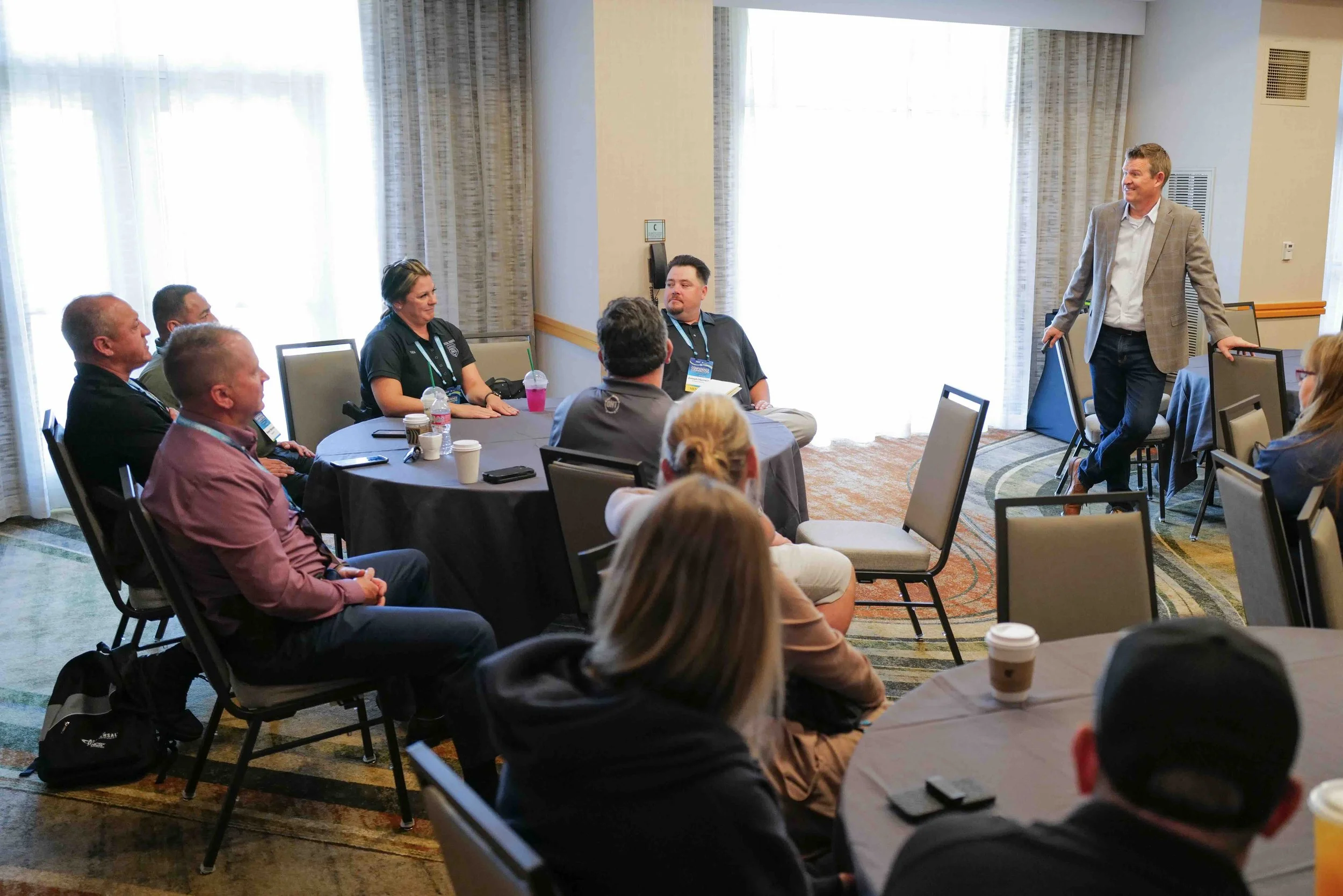
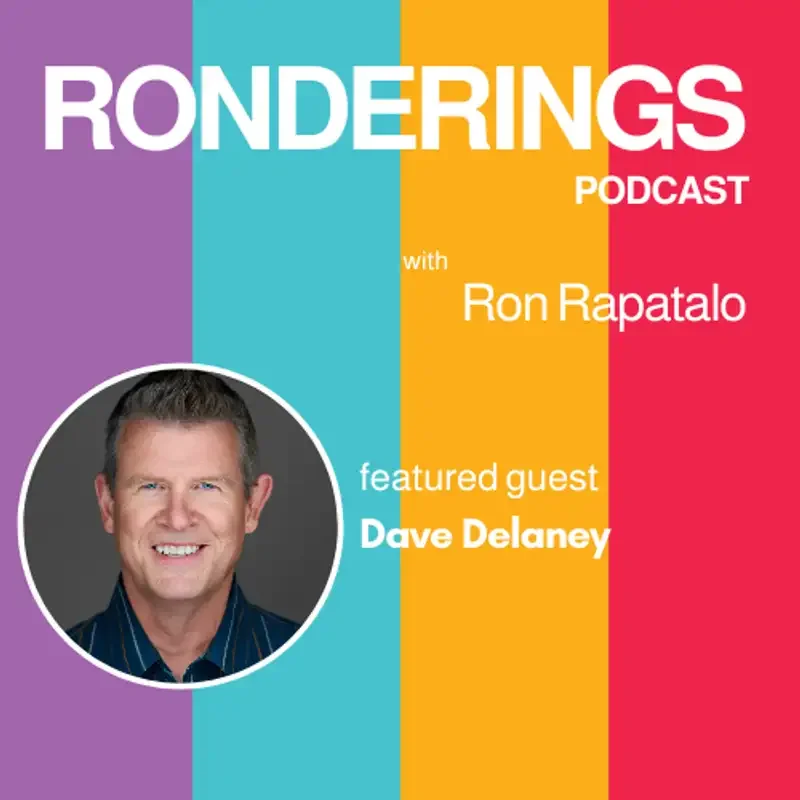

![Your [Company Name] is Incredible!](https://images.squarespace-cdn.com/content/v1/5660a6c4e4b0790972fffeec/1769020653537-LZ0D3QXNUZ4AQMPOJT23/grinds-my-gears-peter-griffin.gif)
